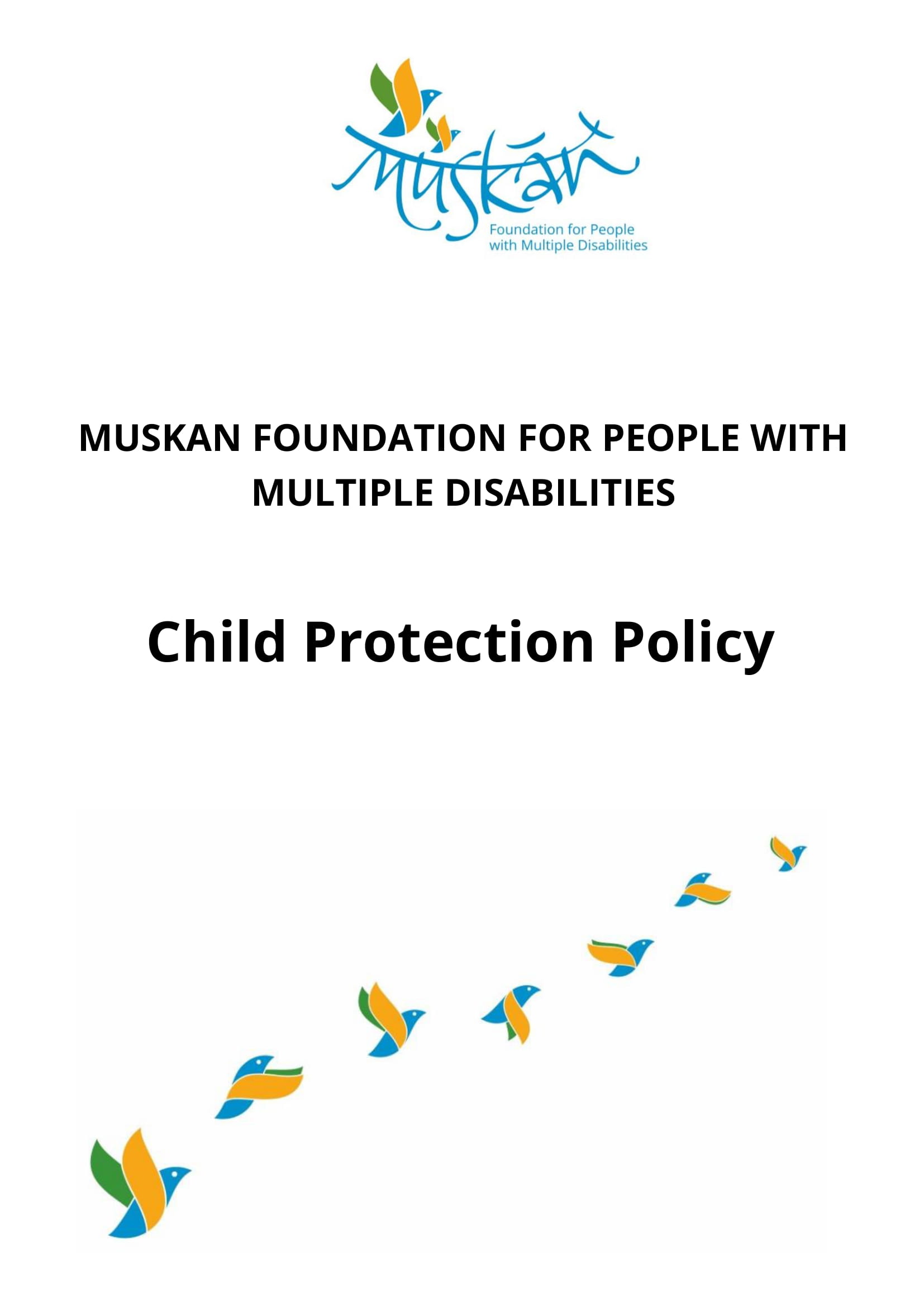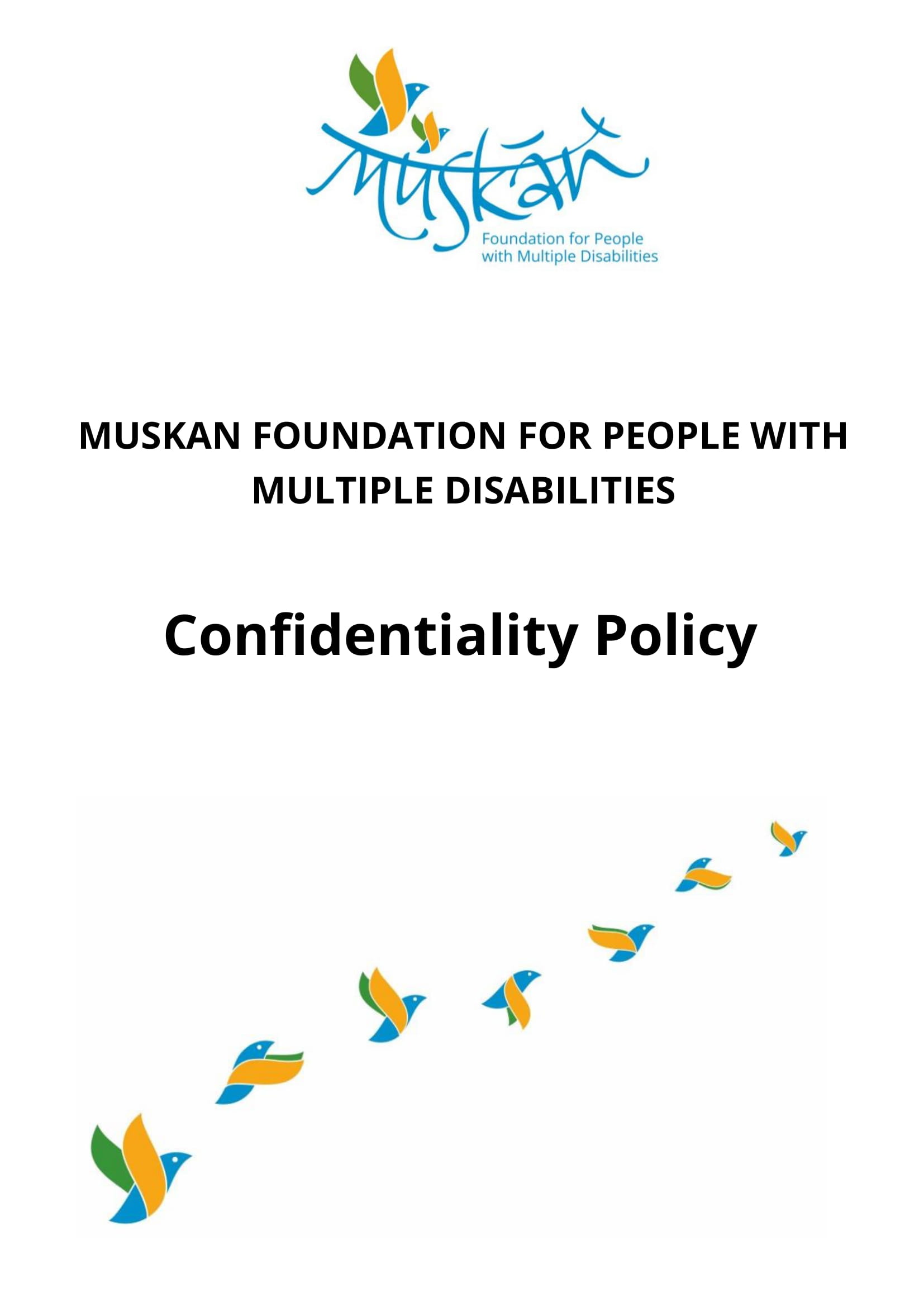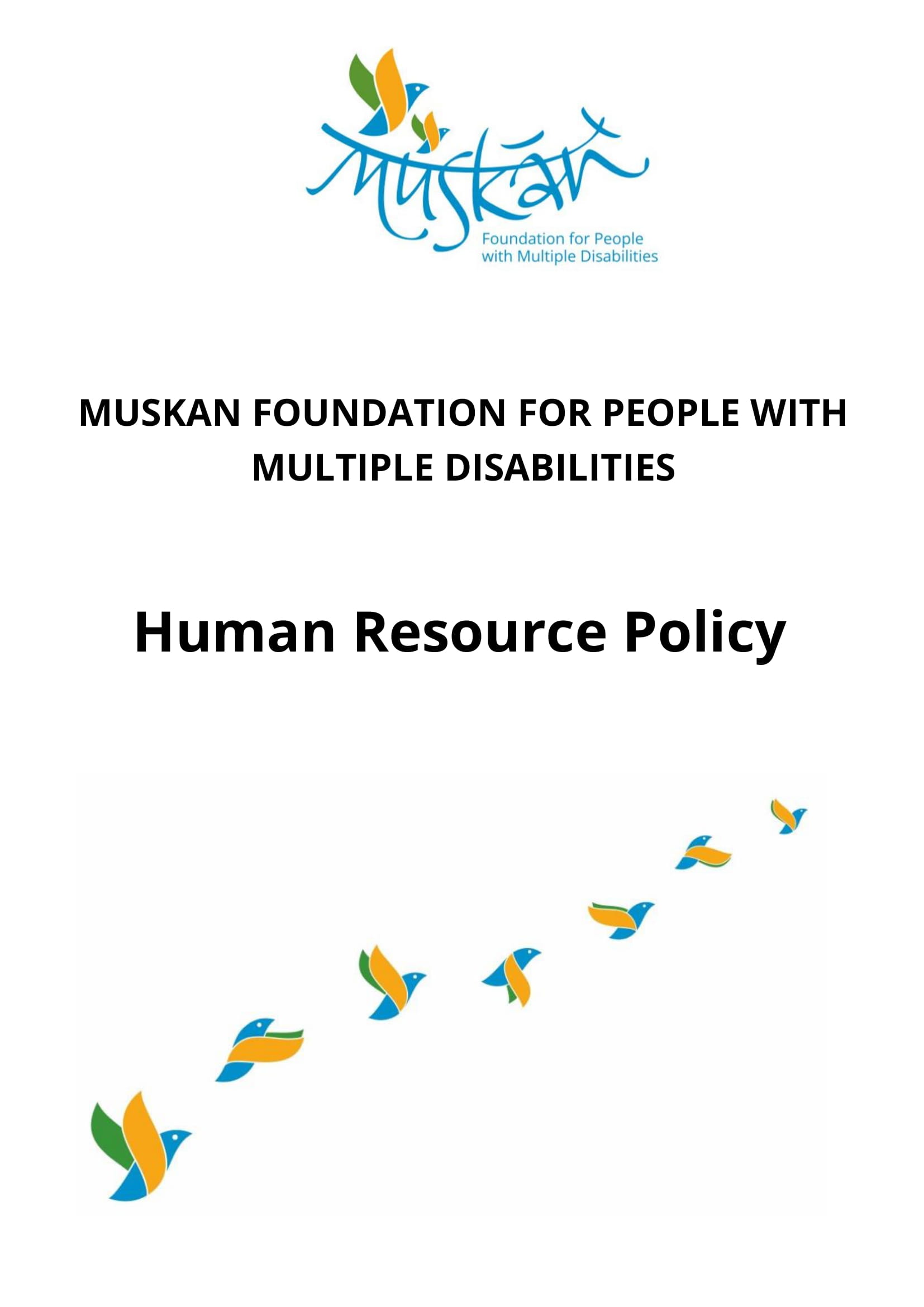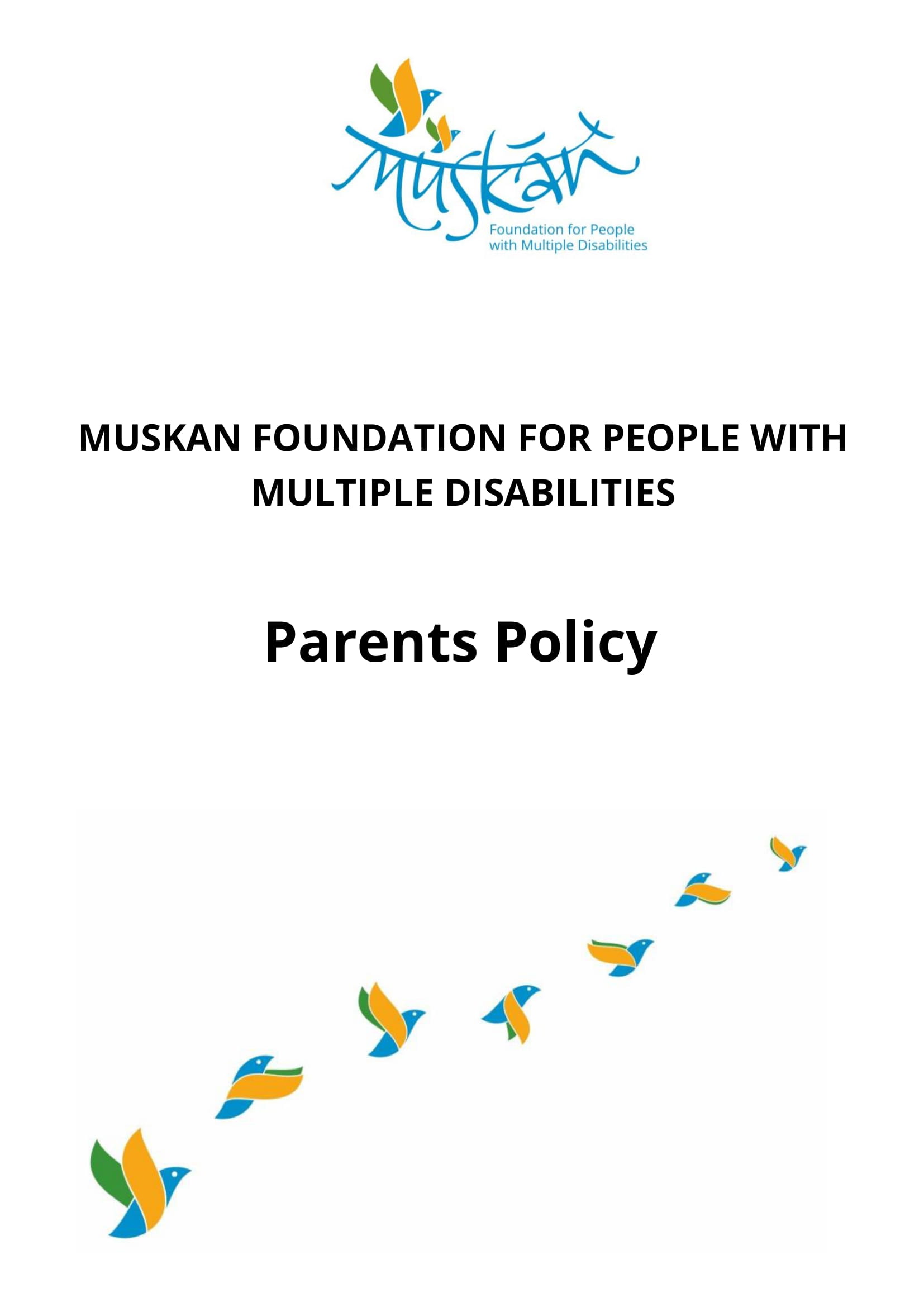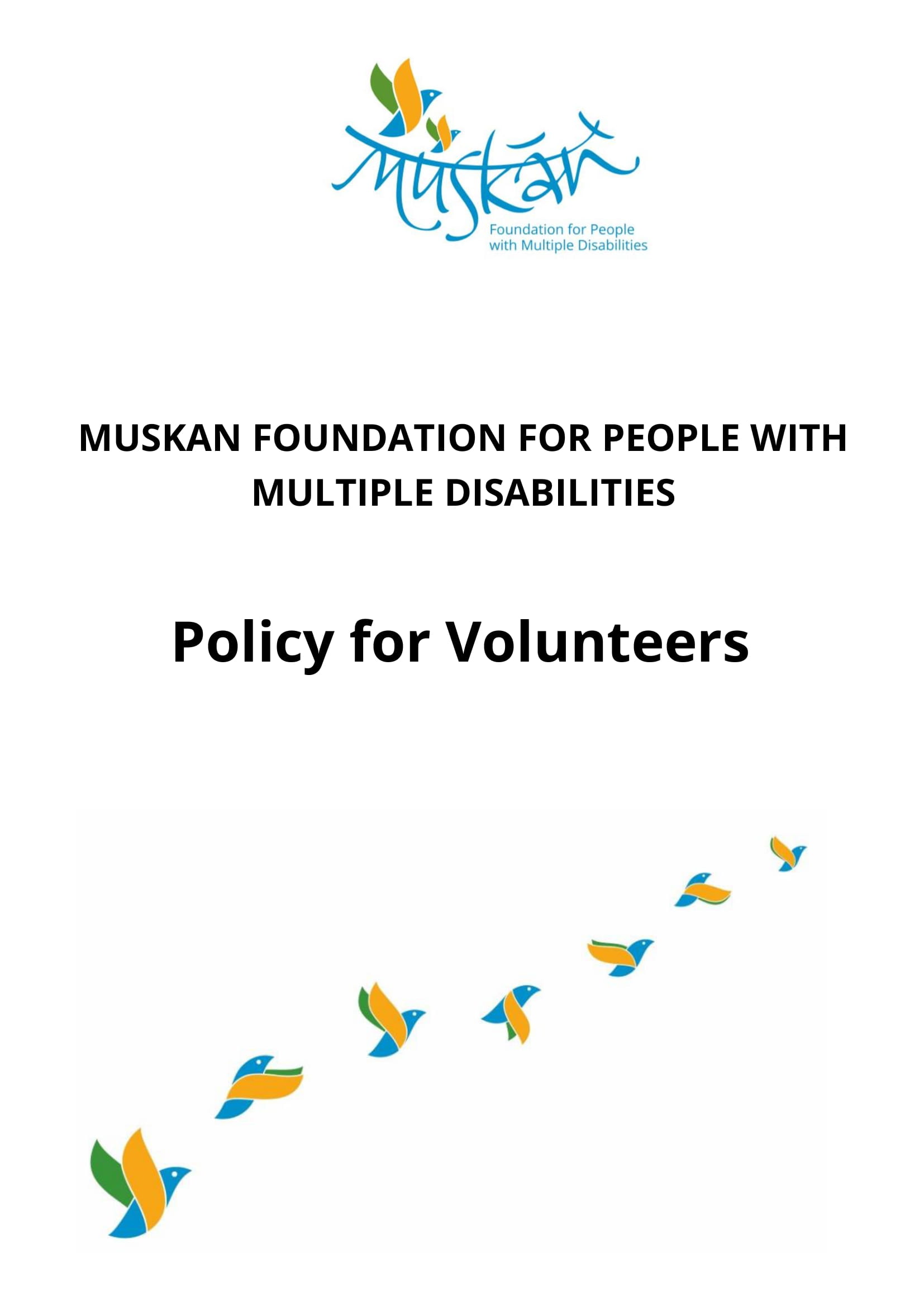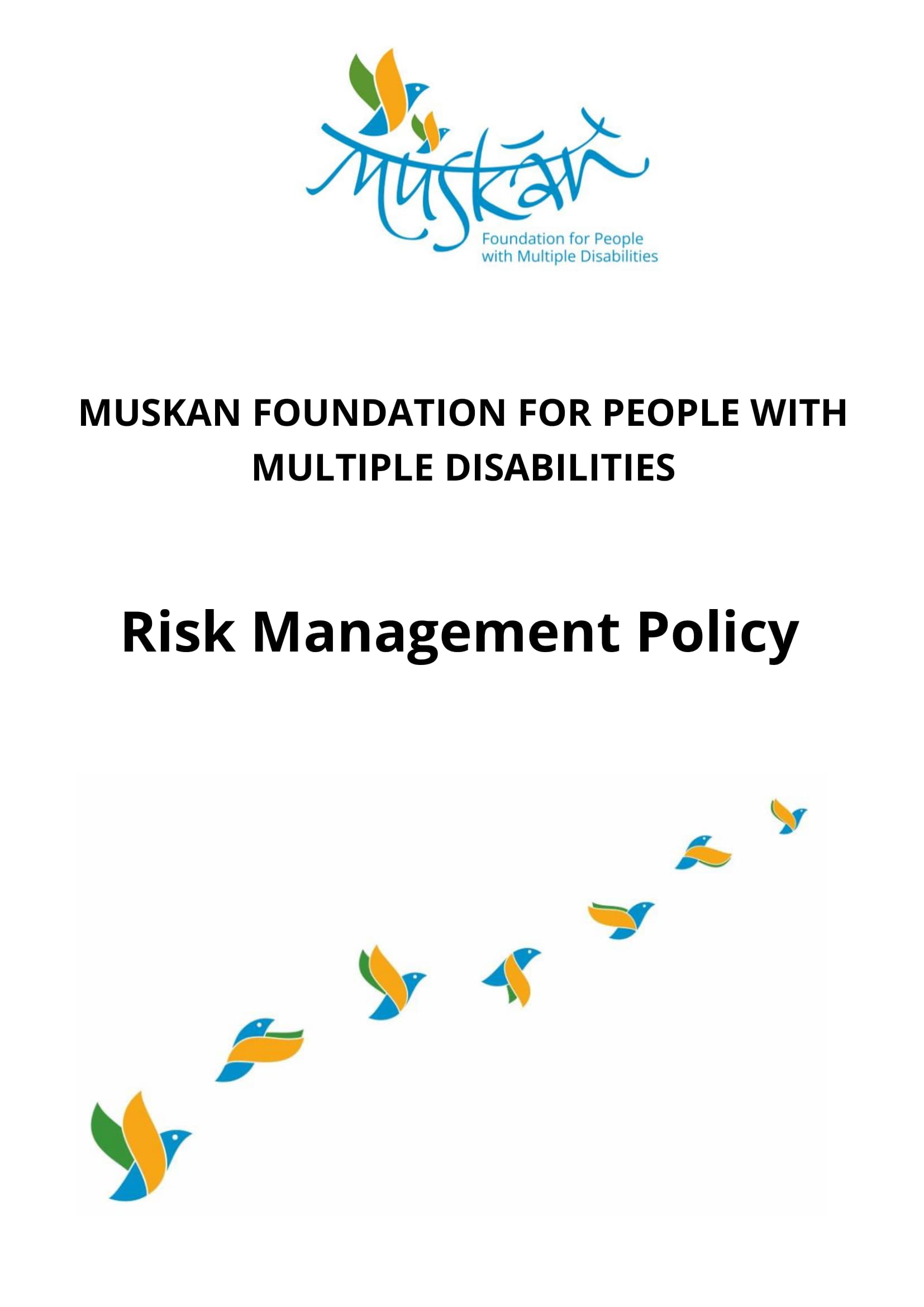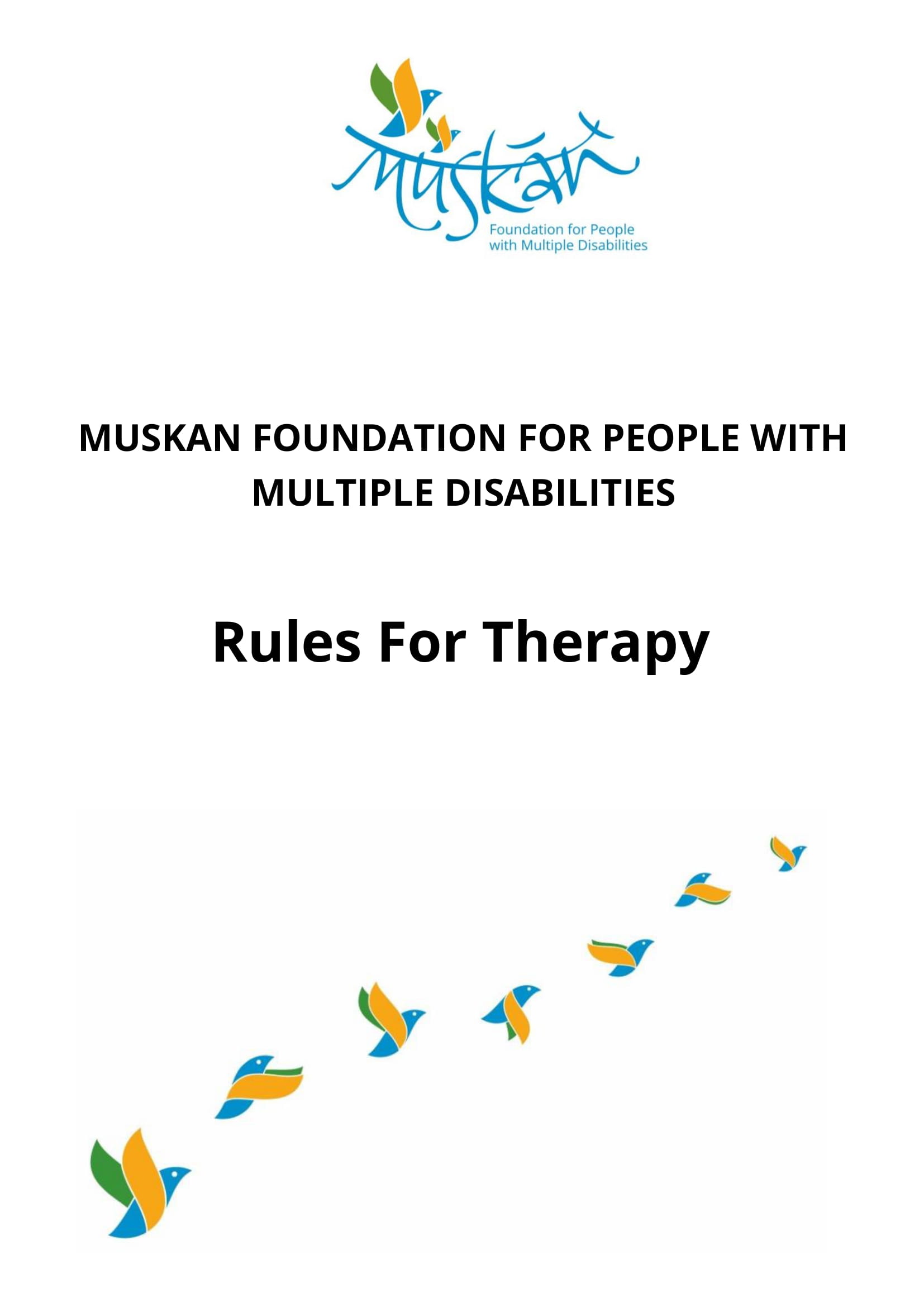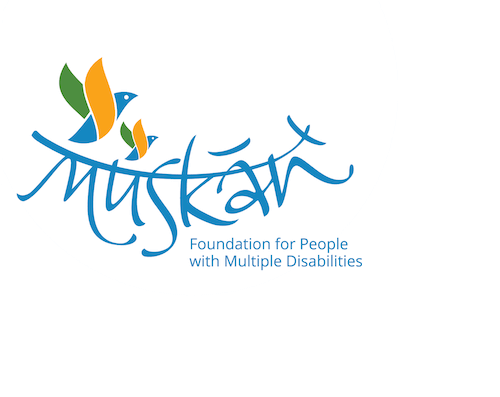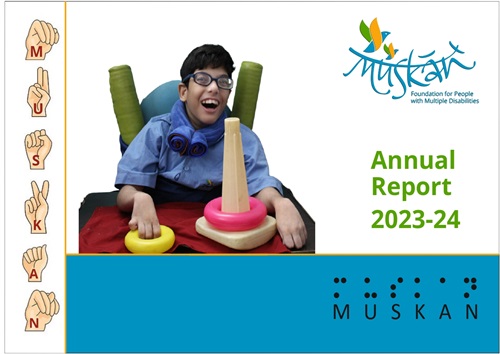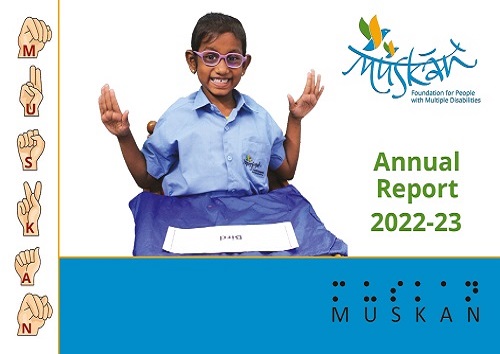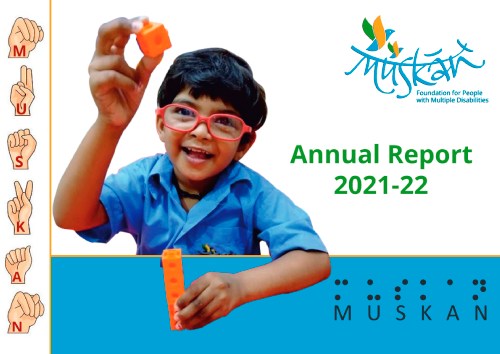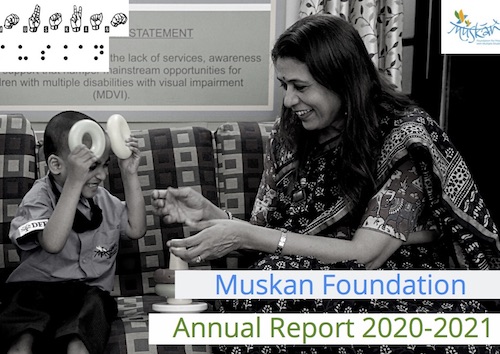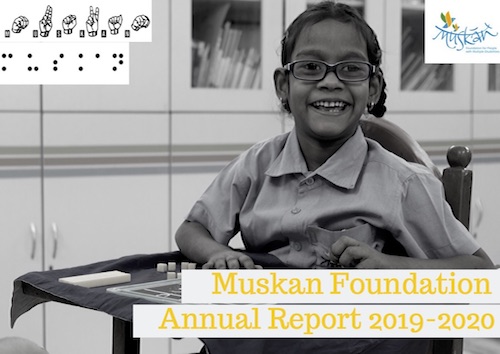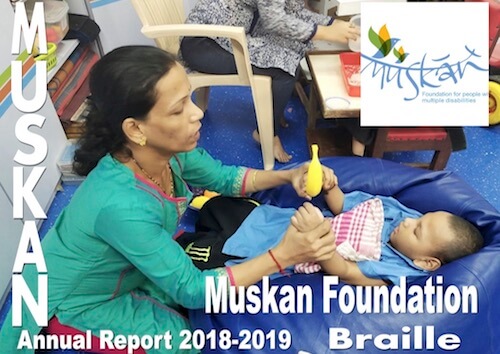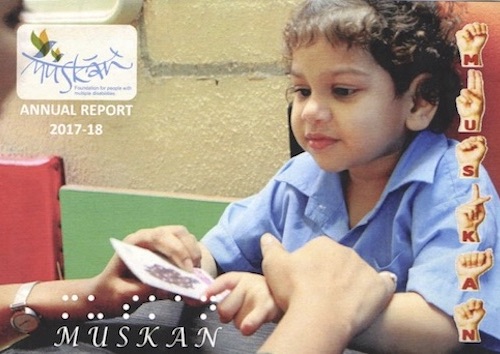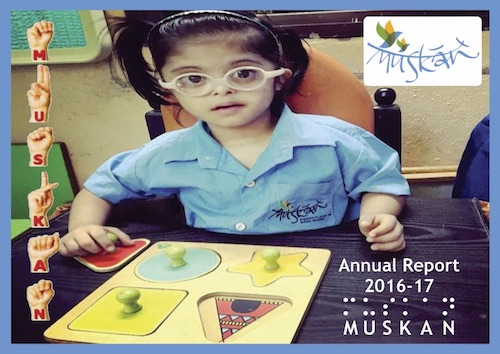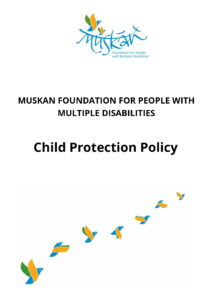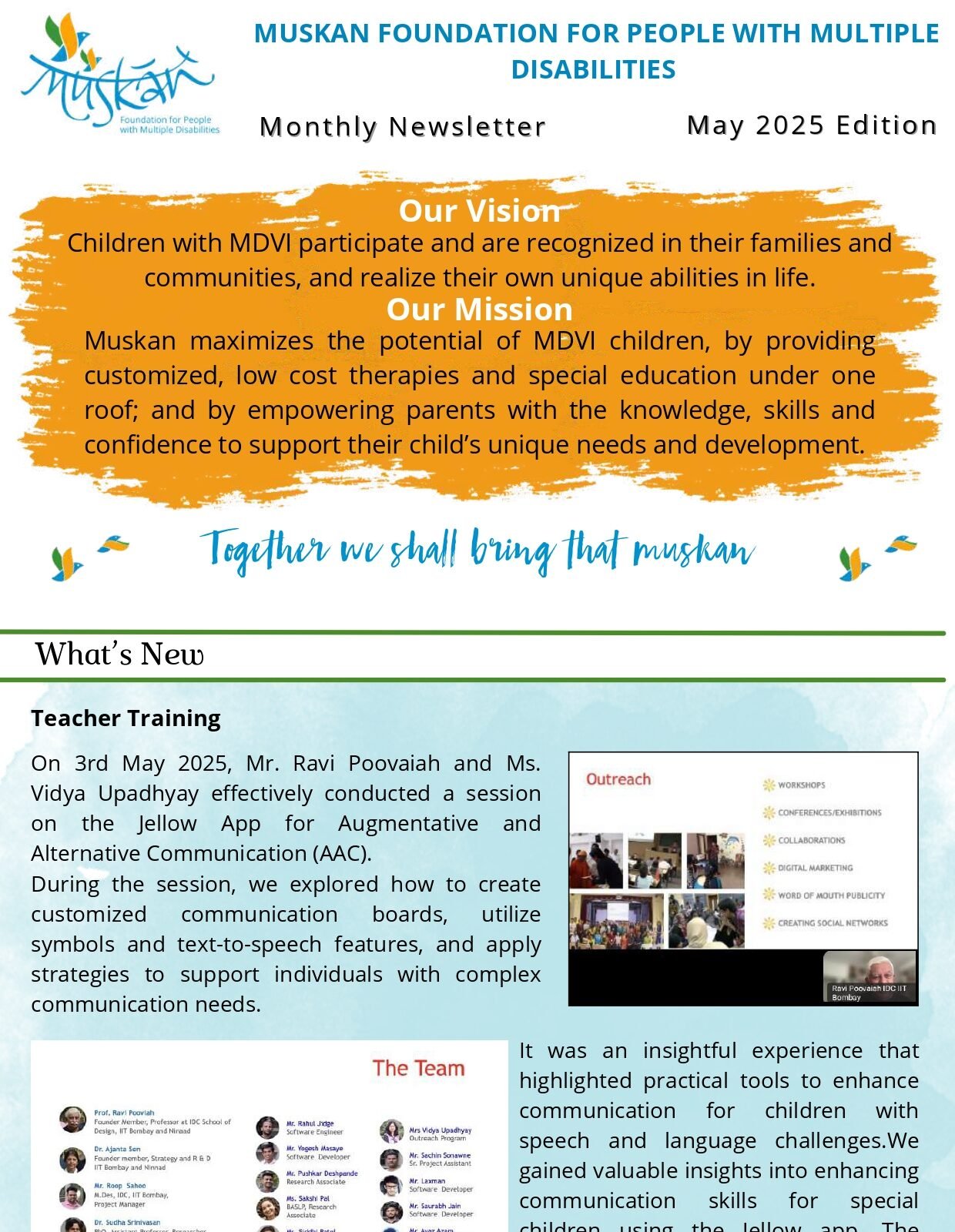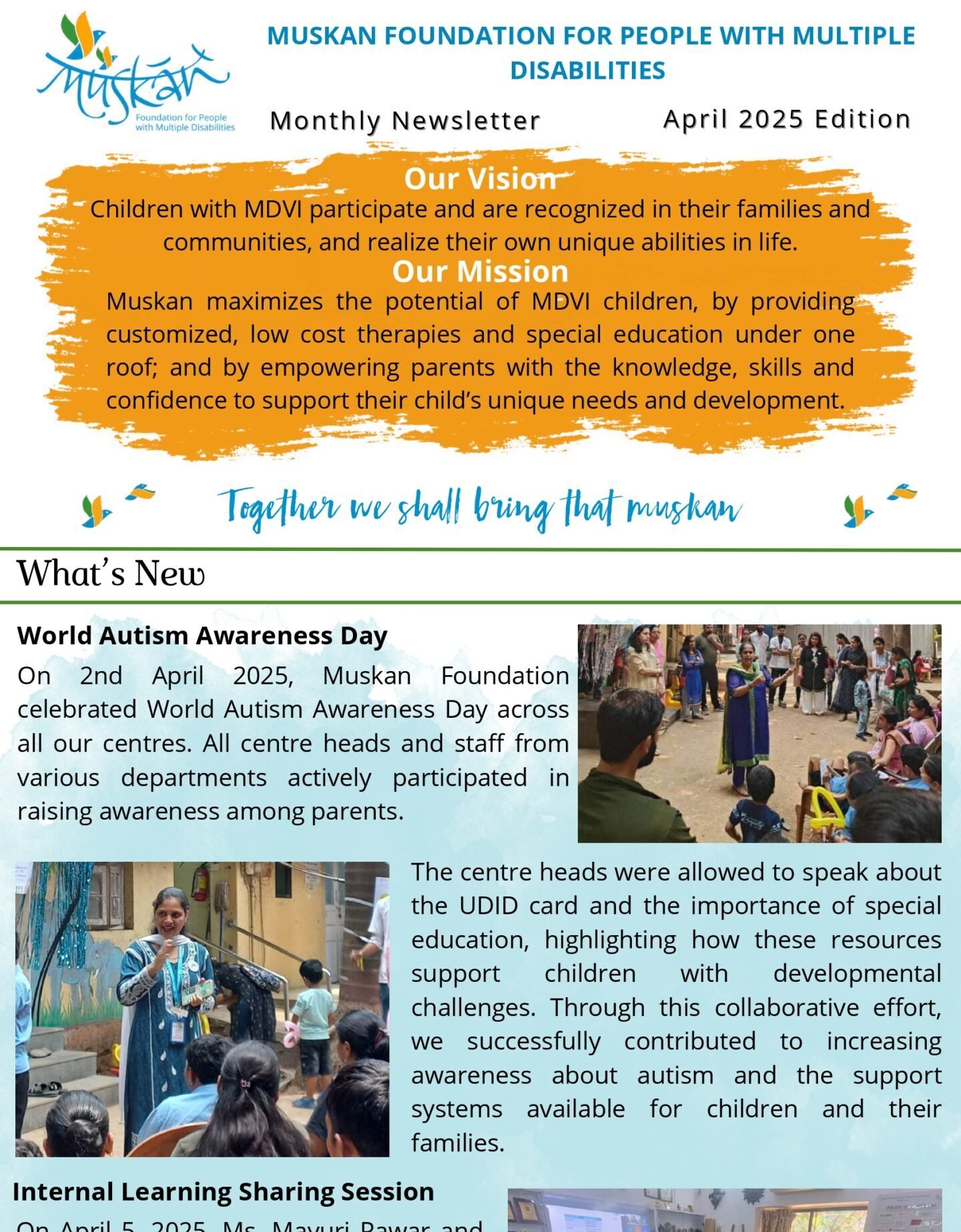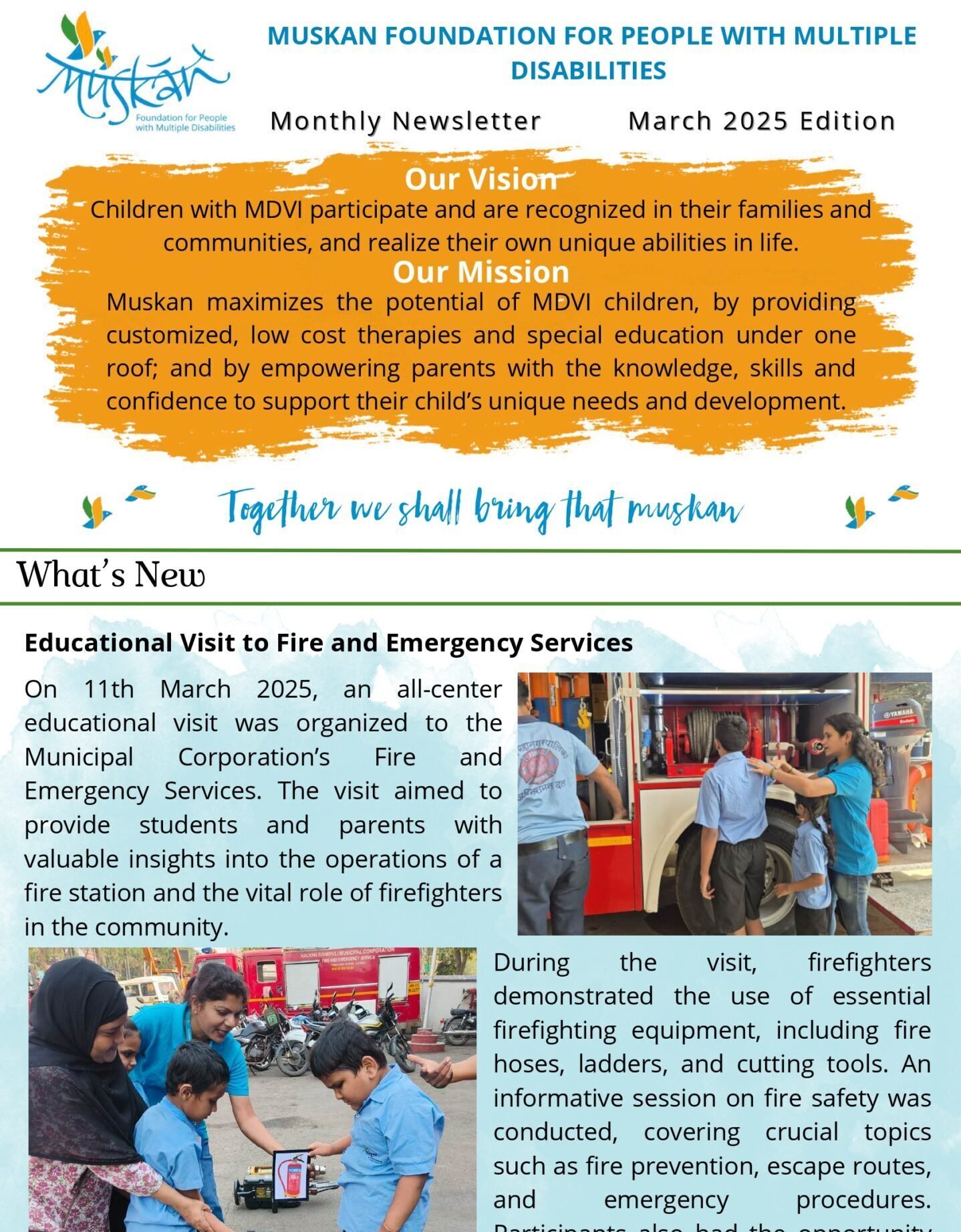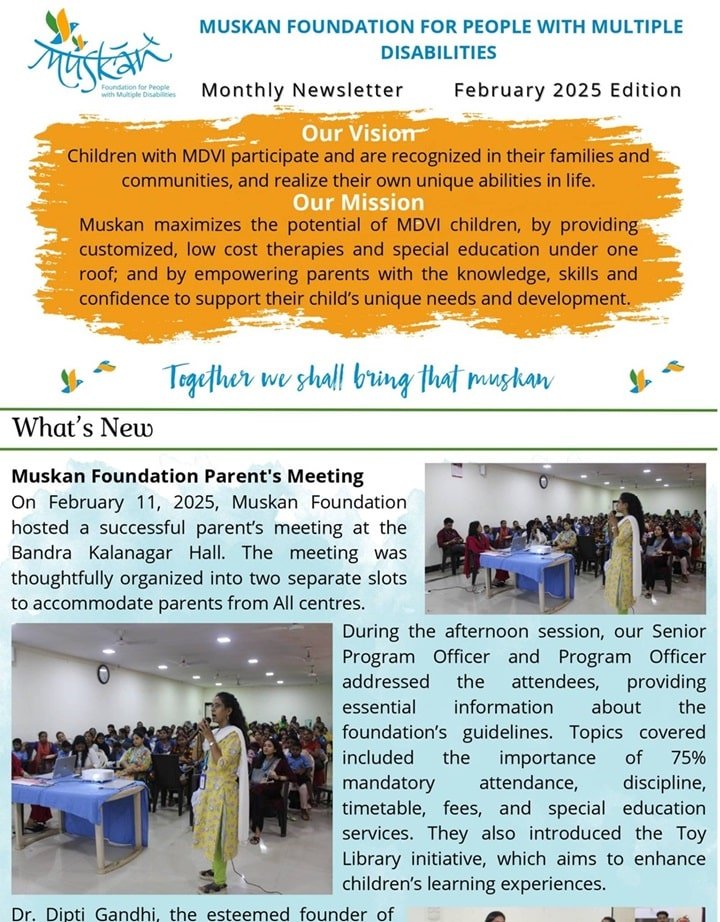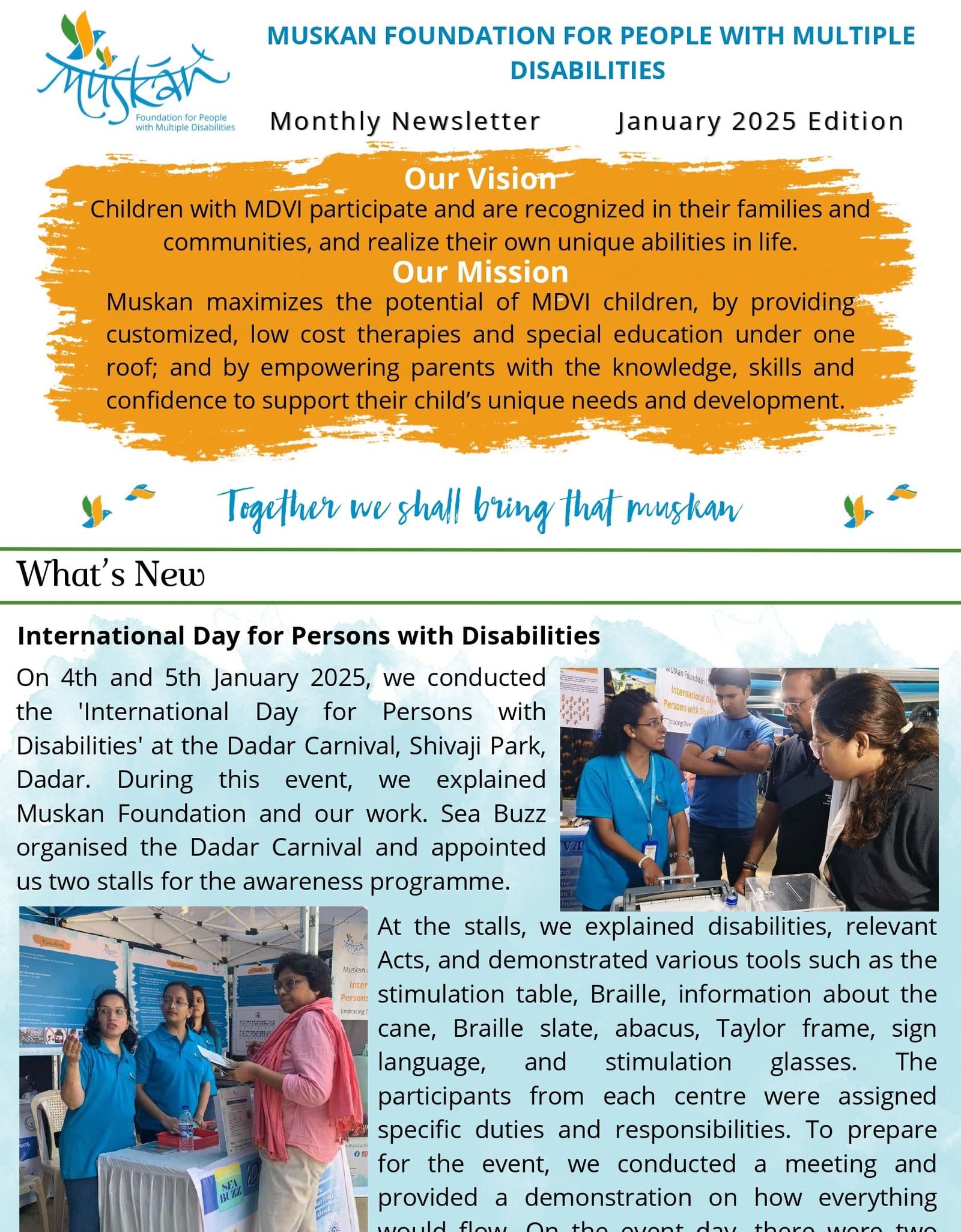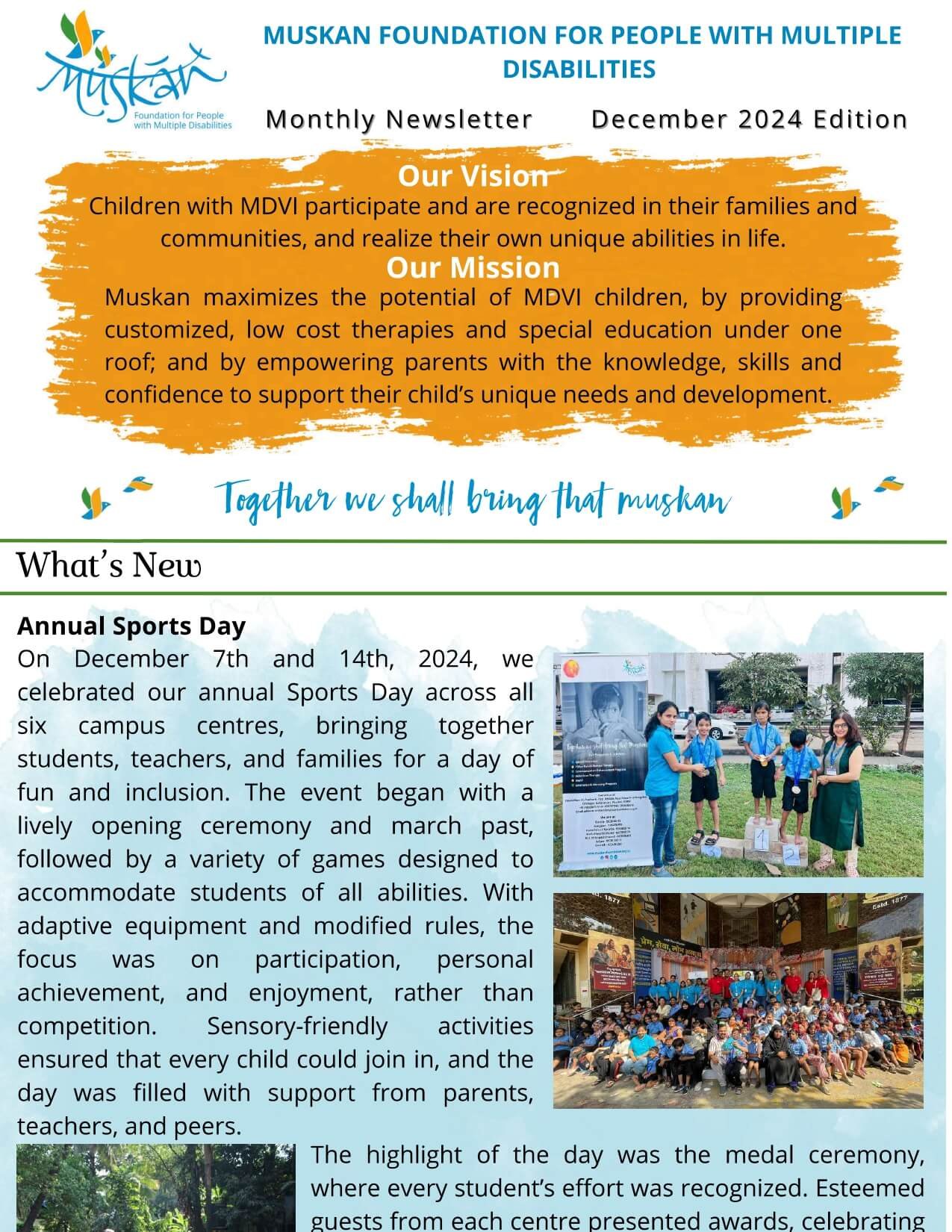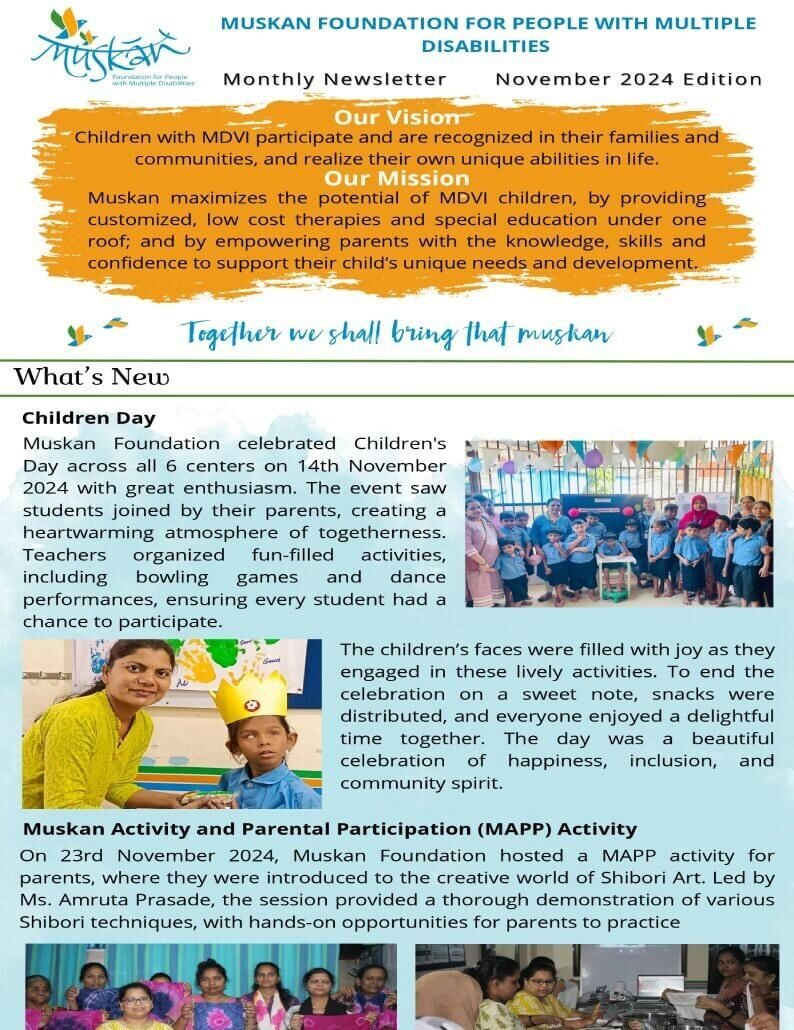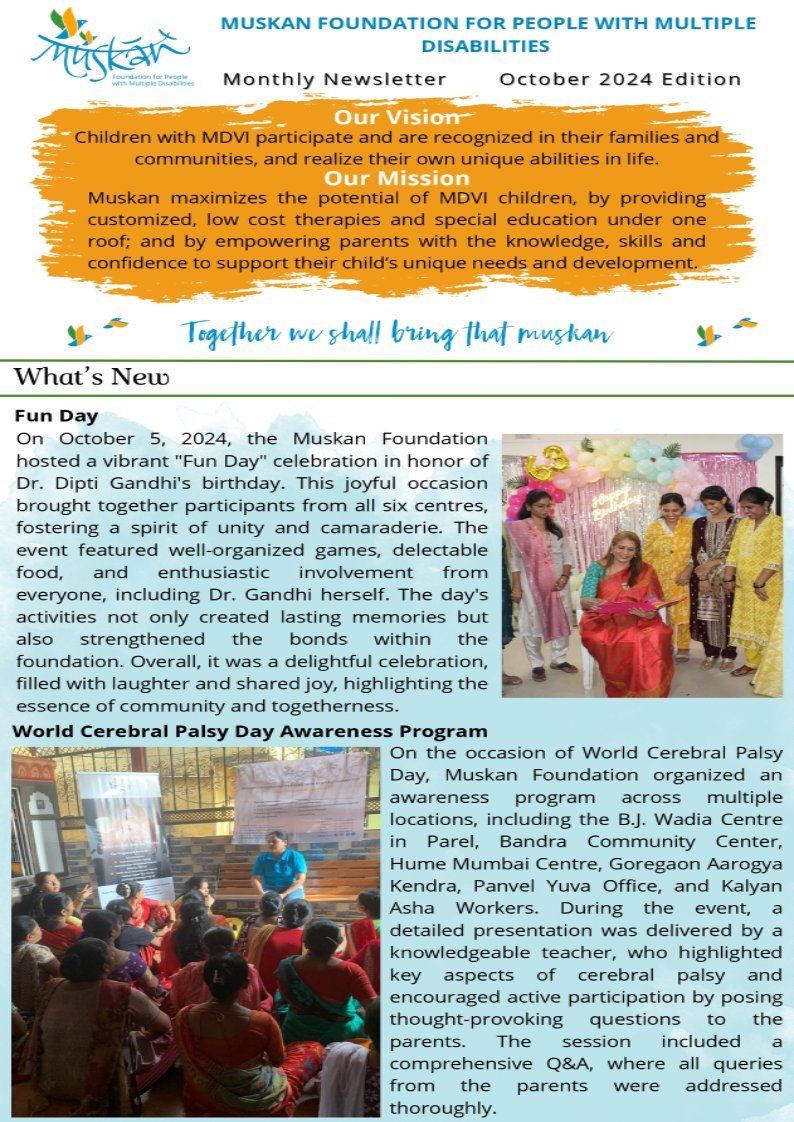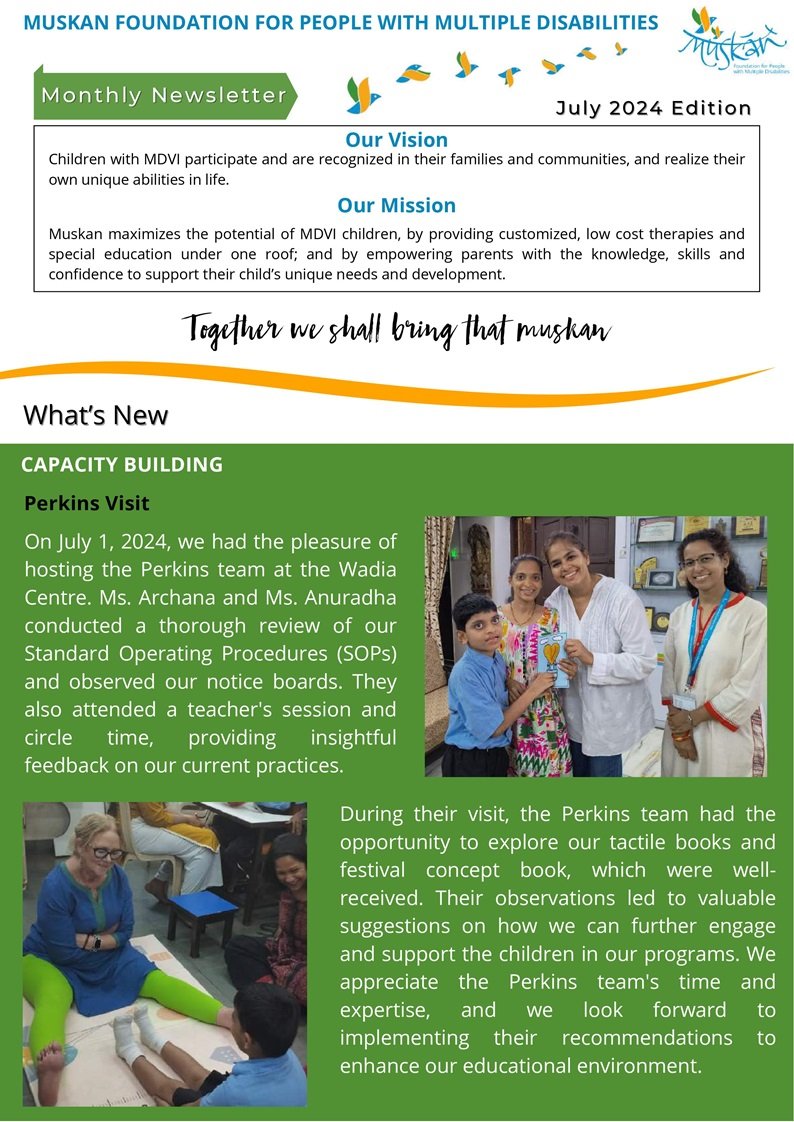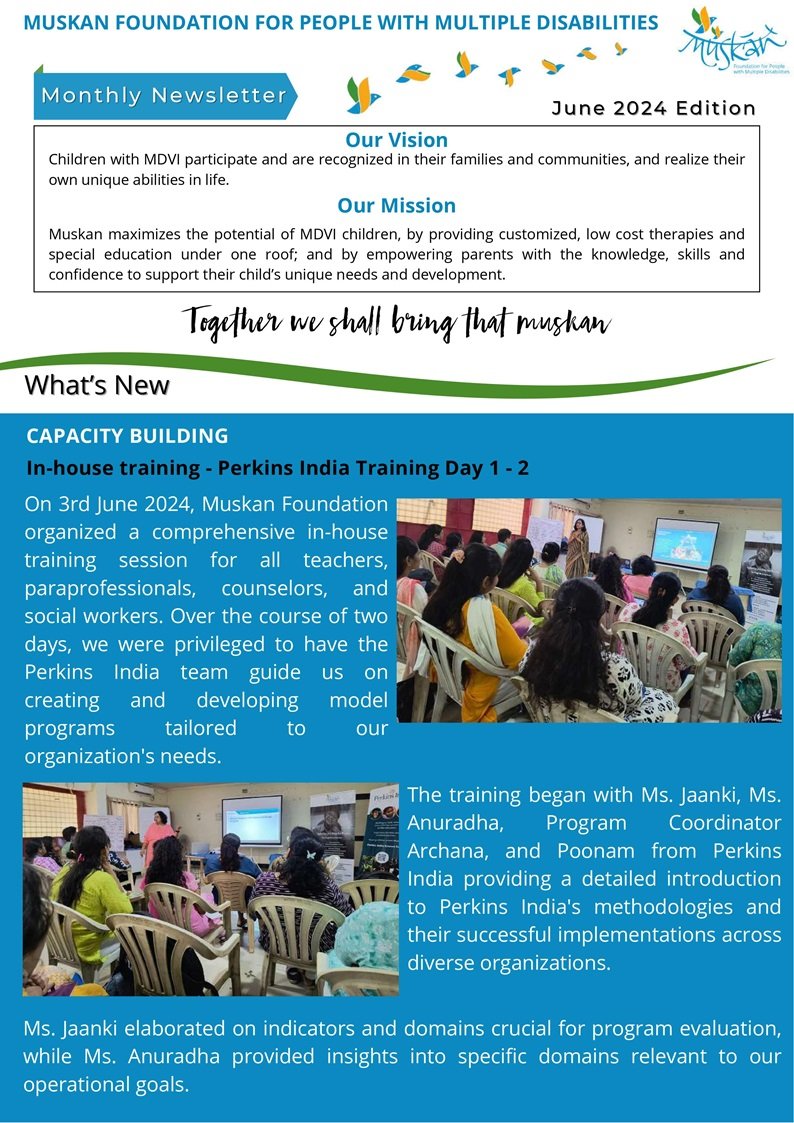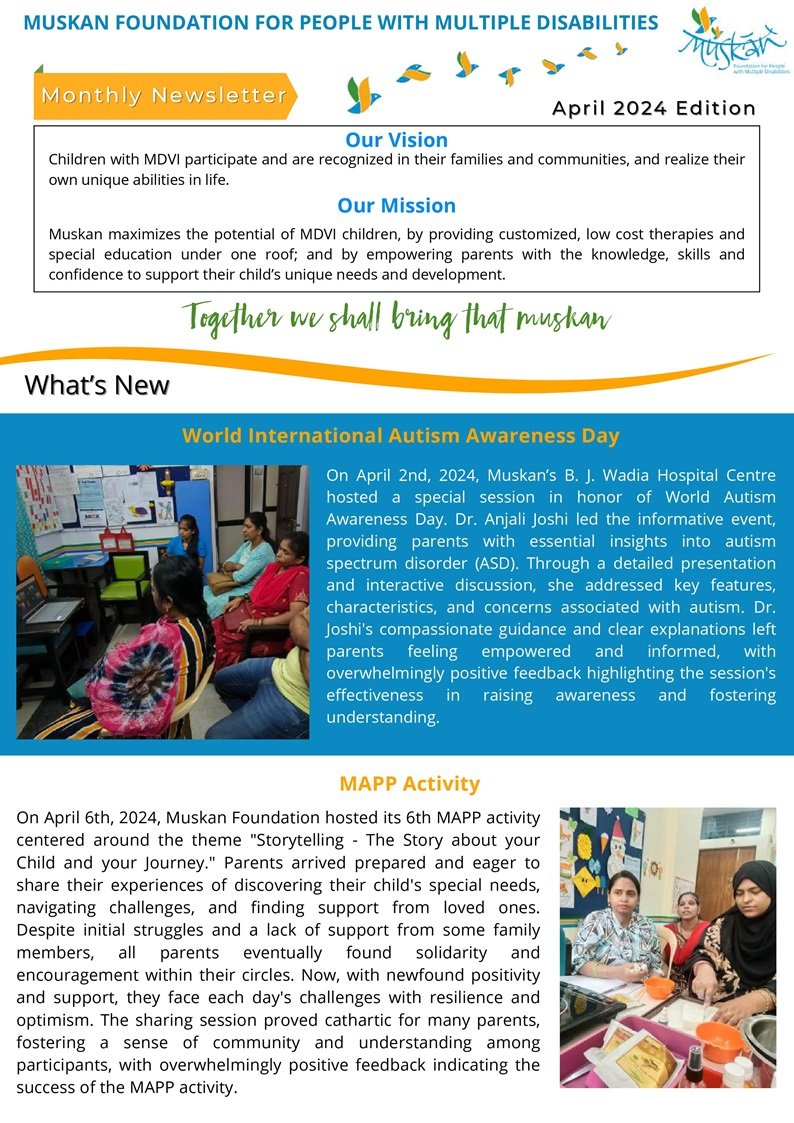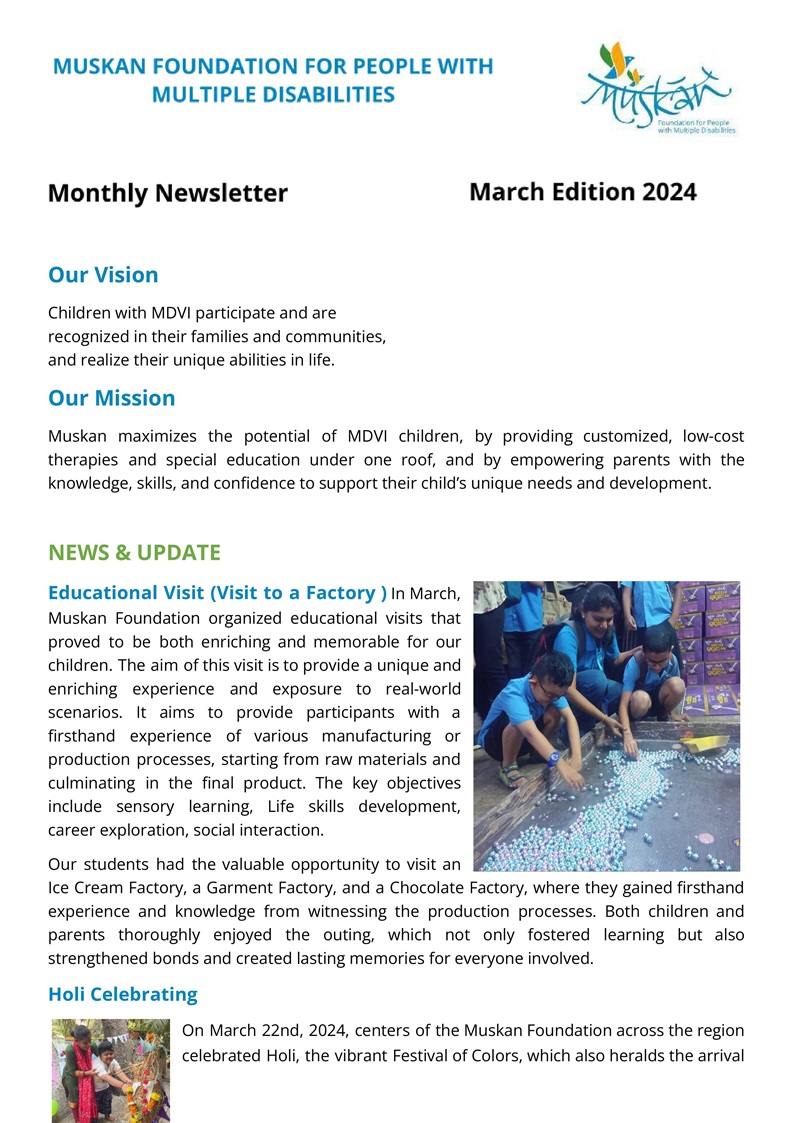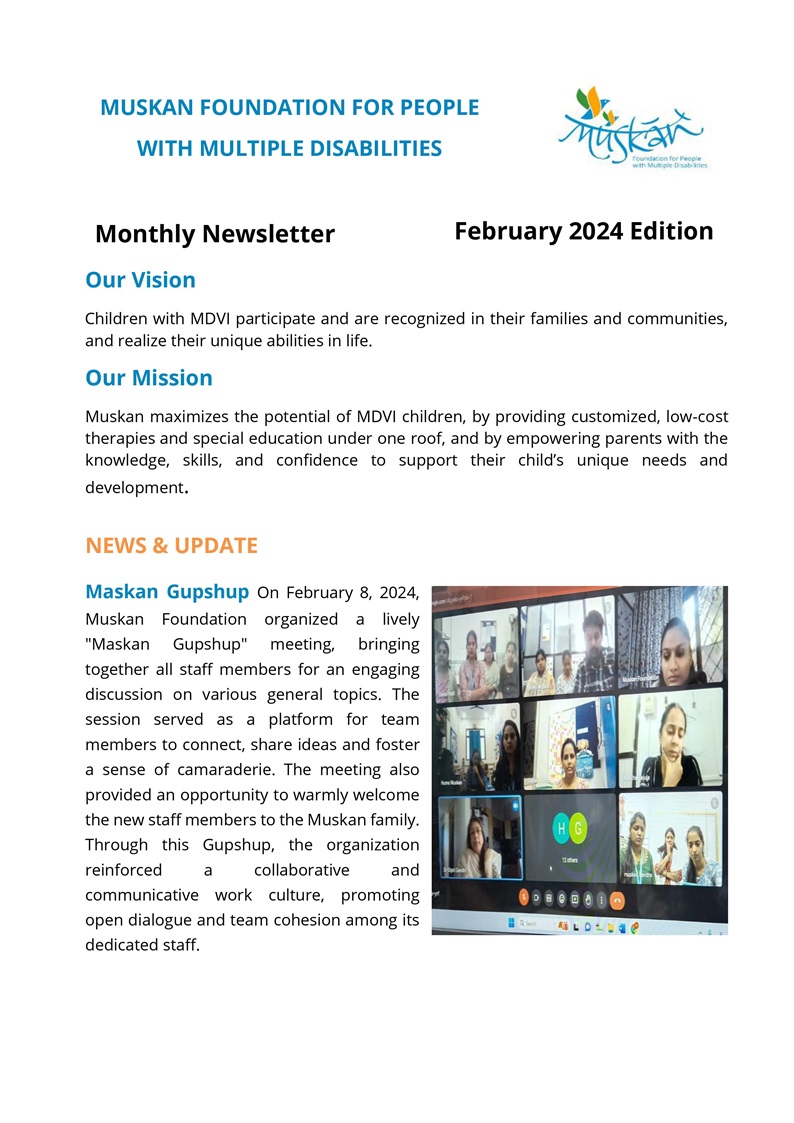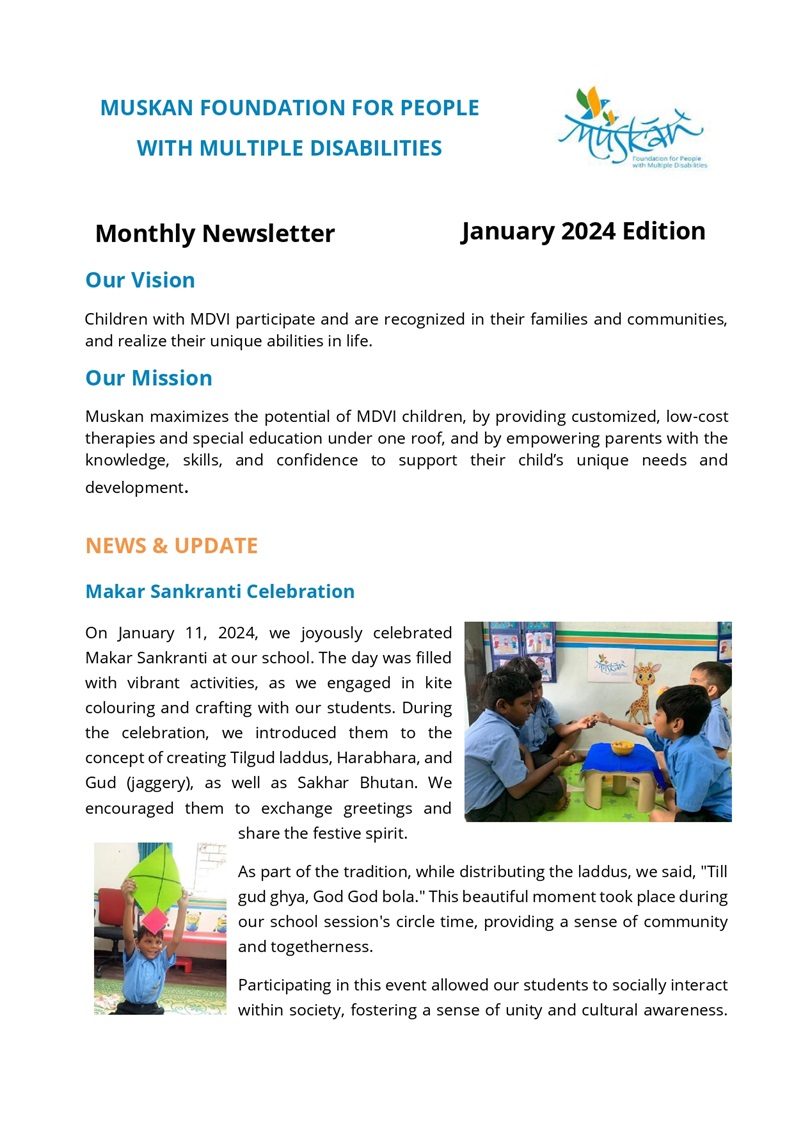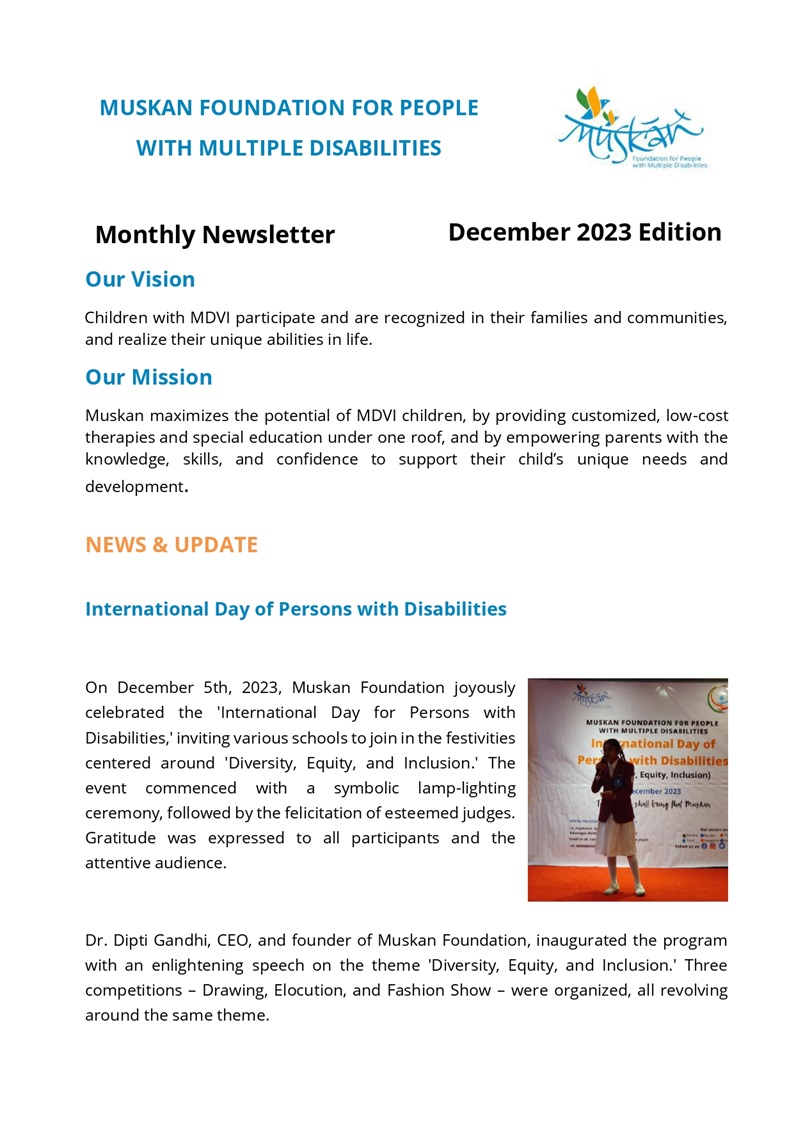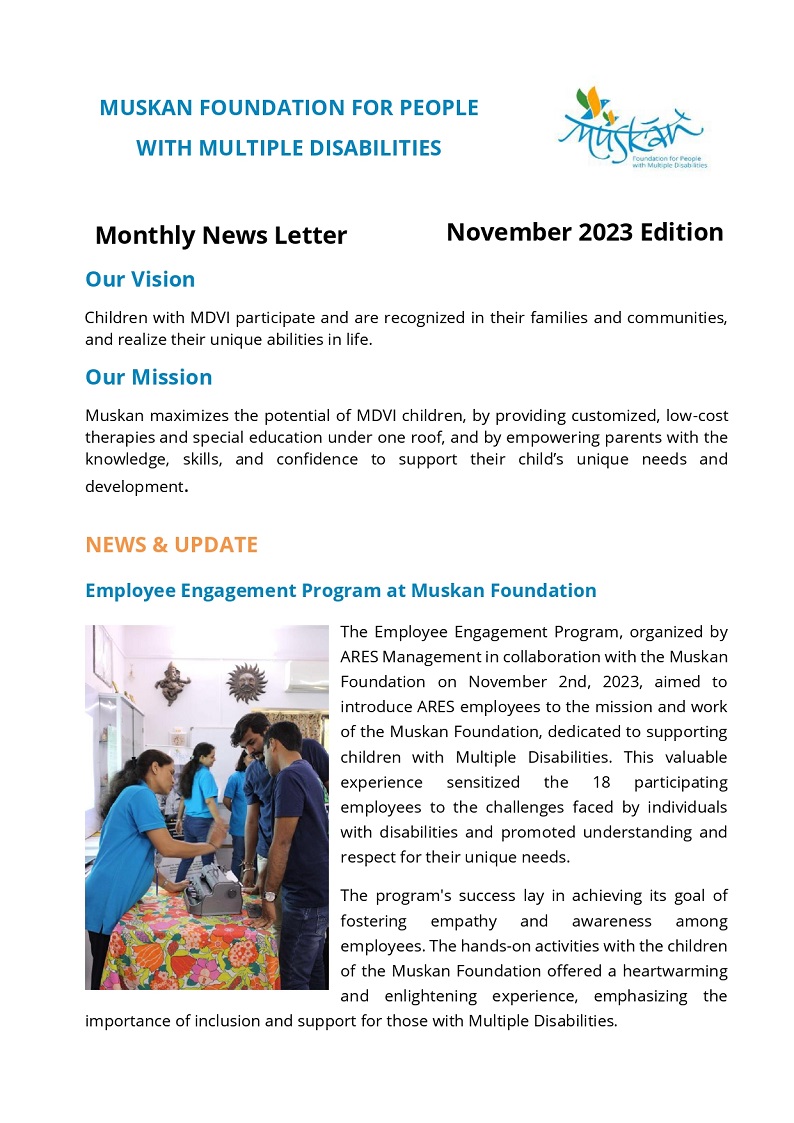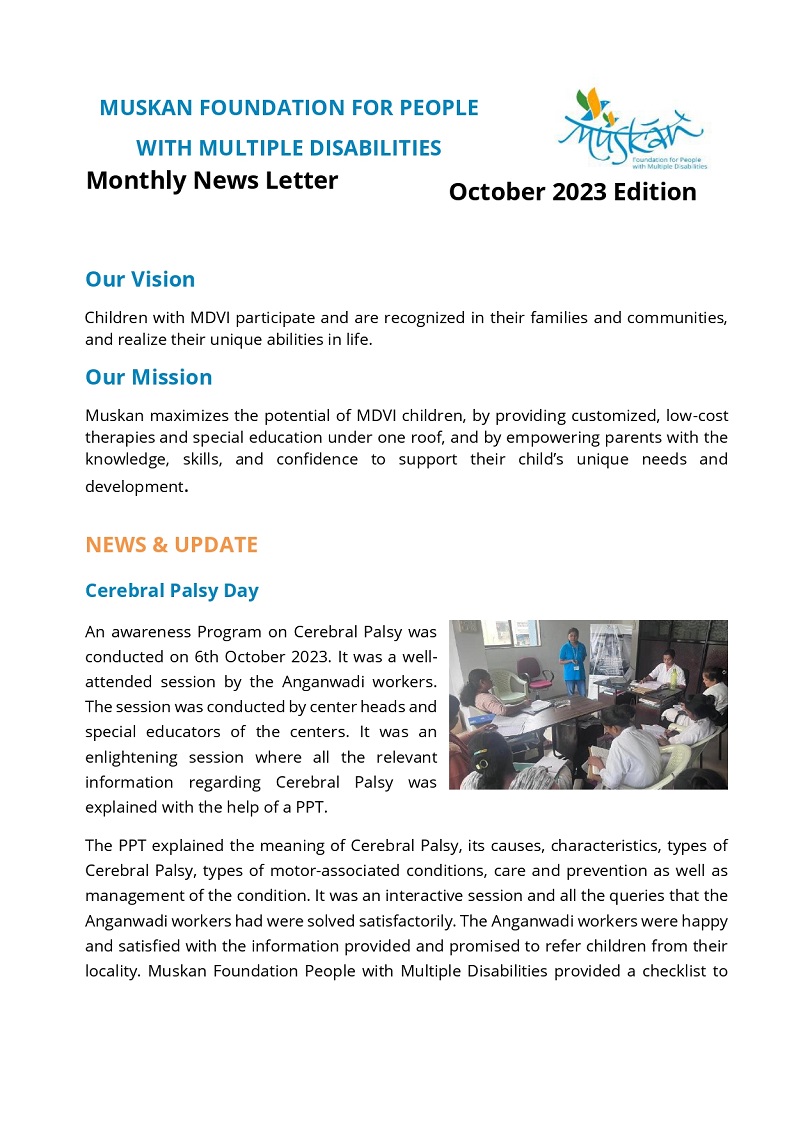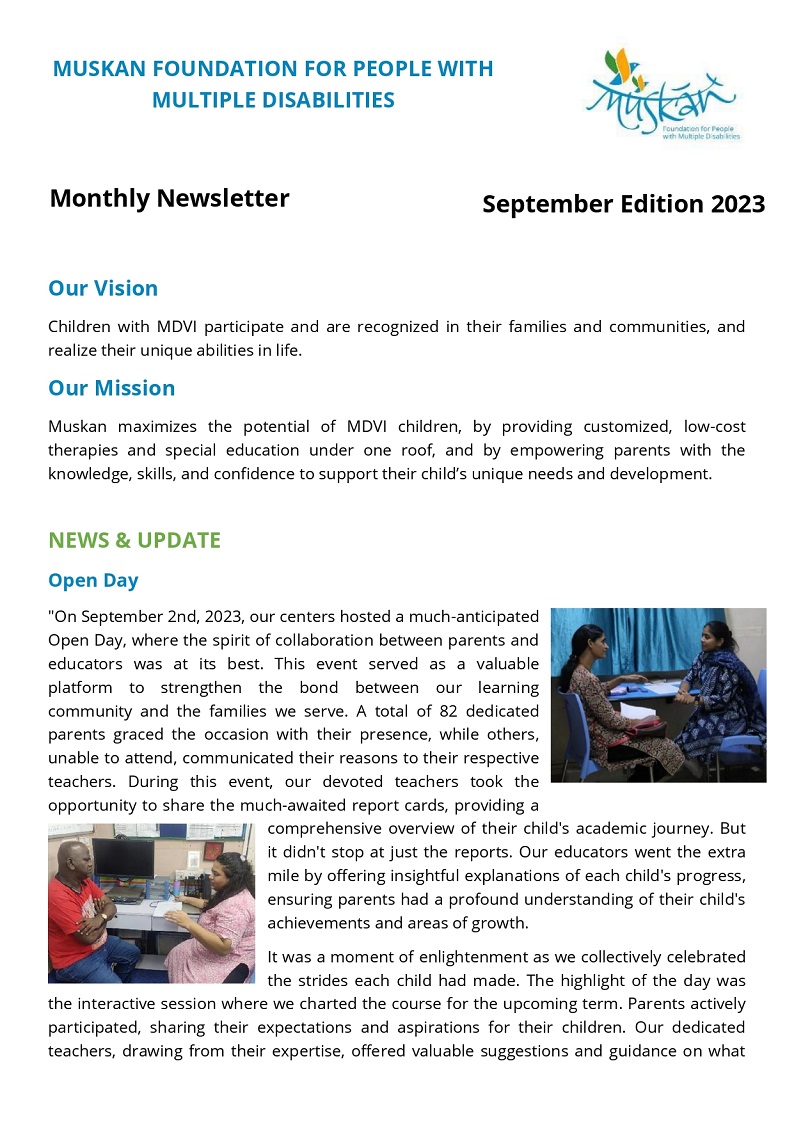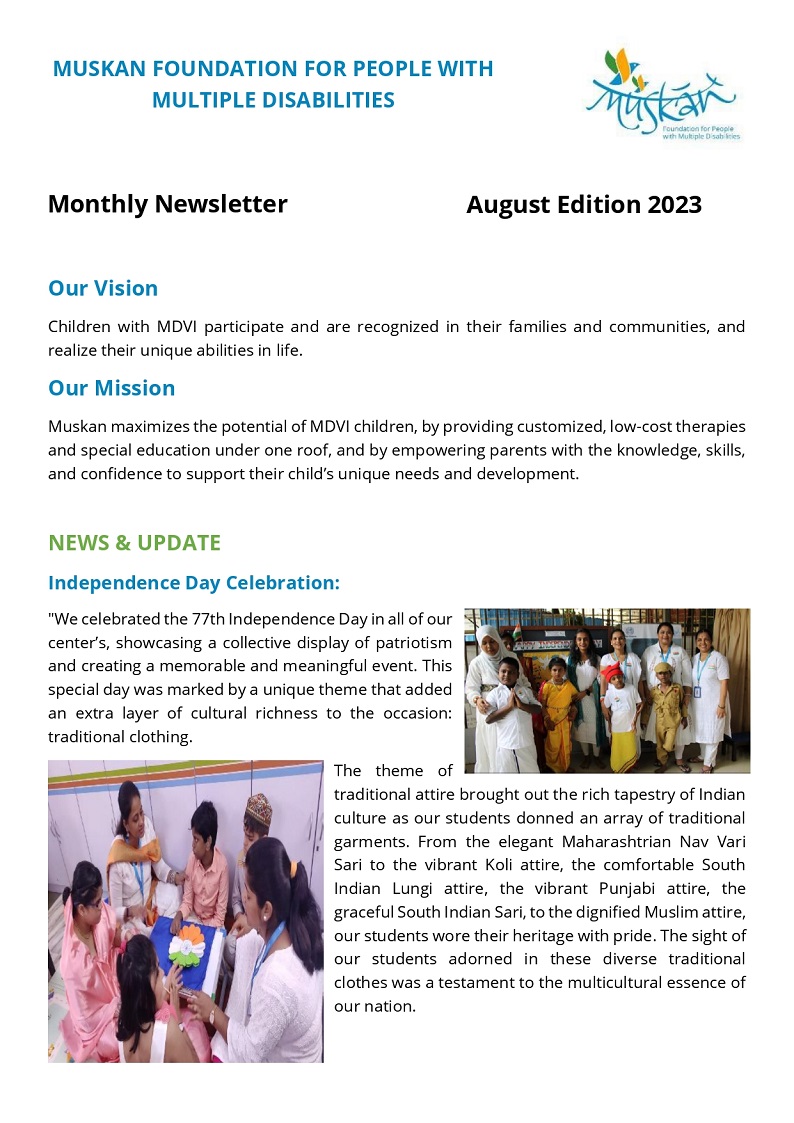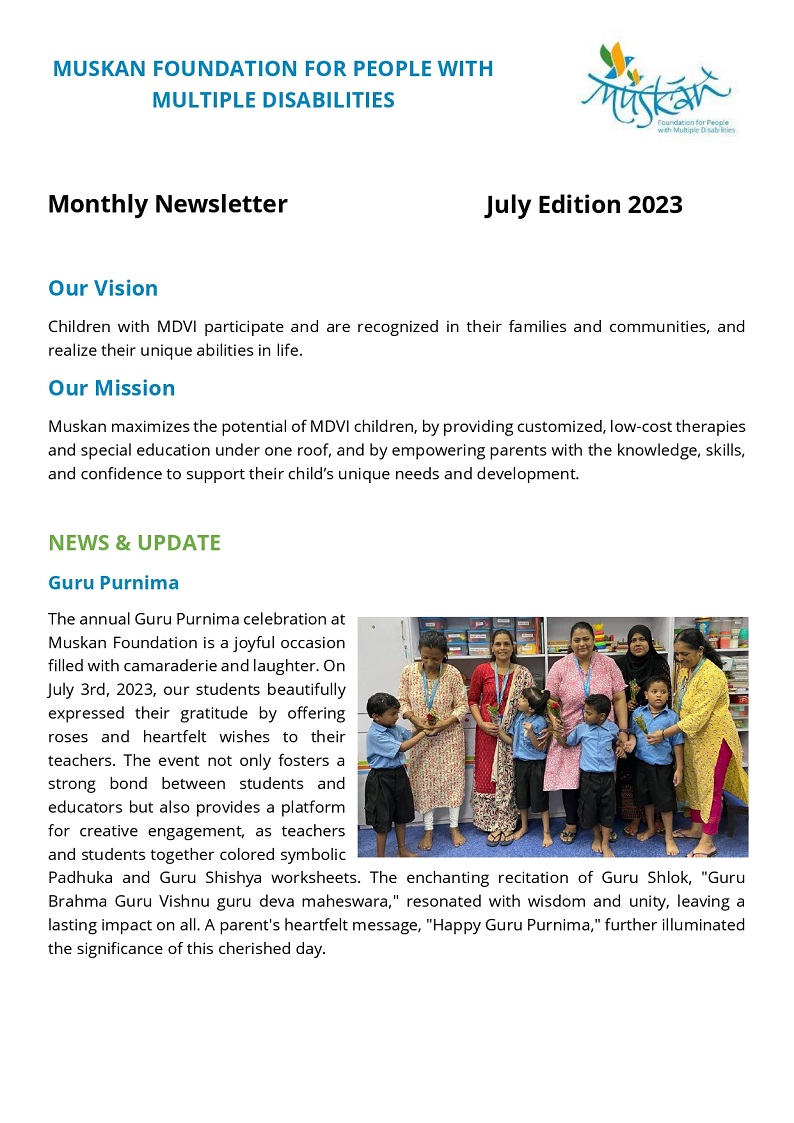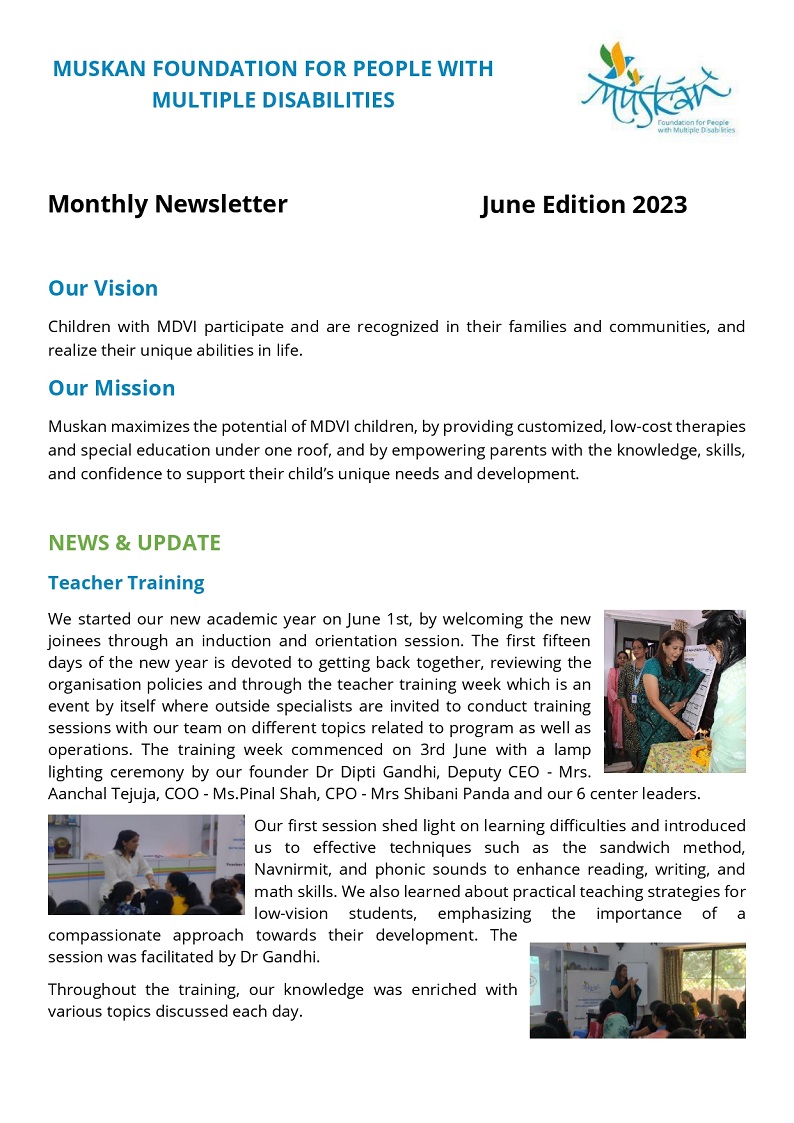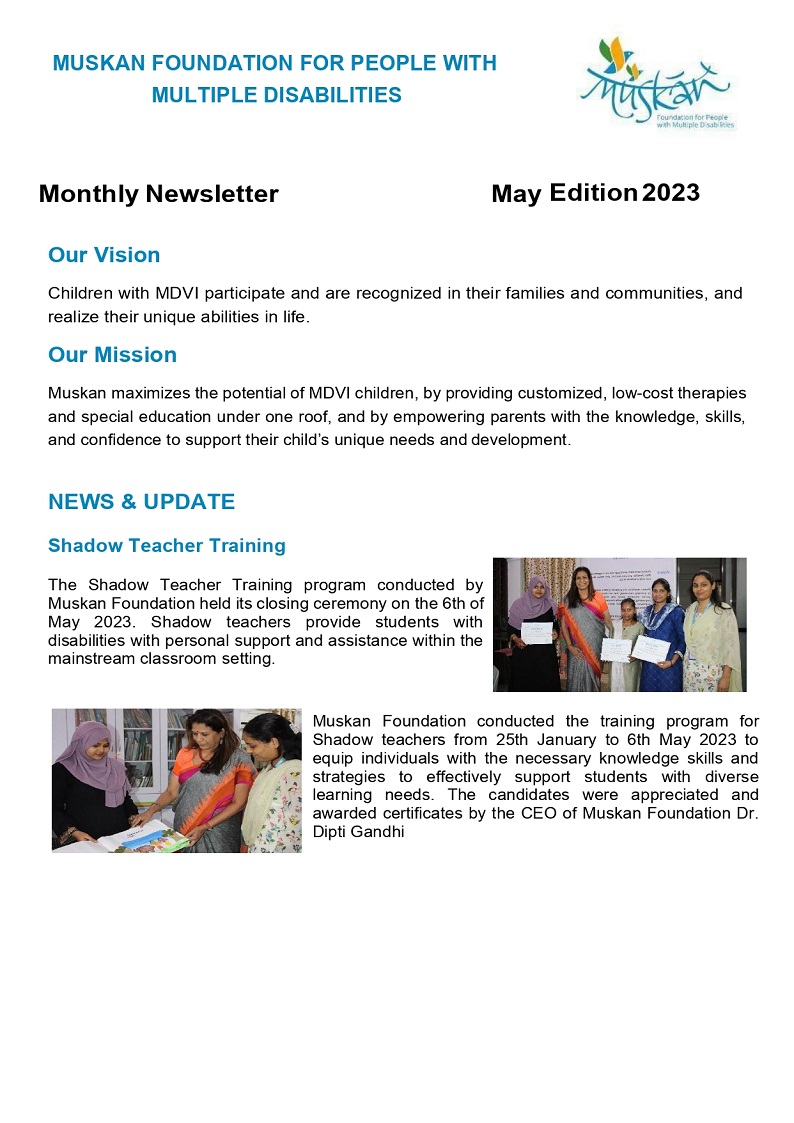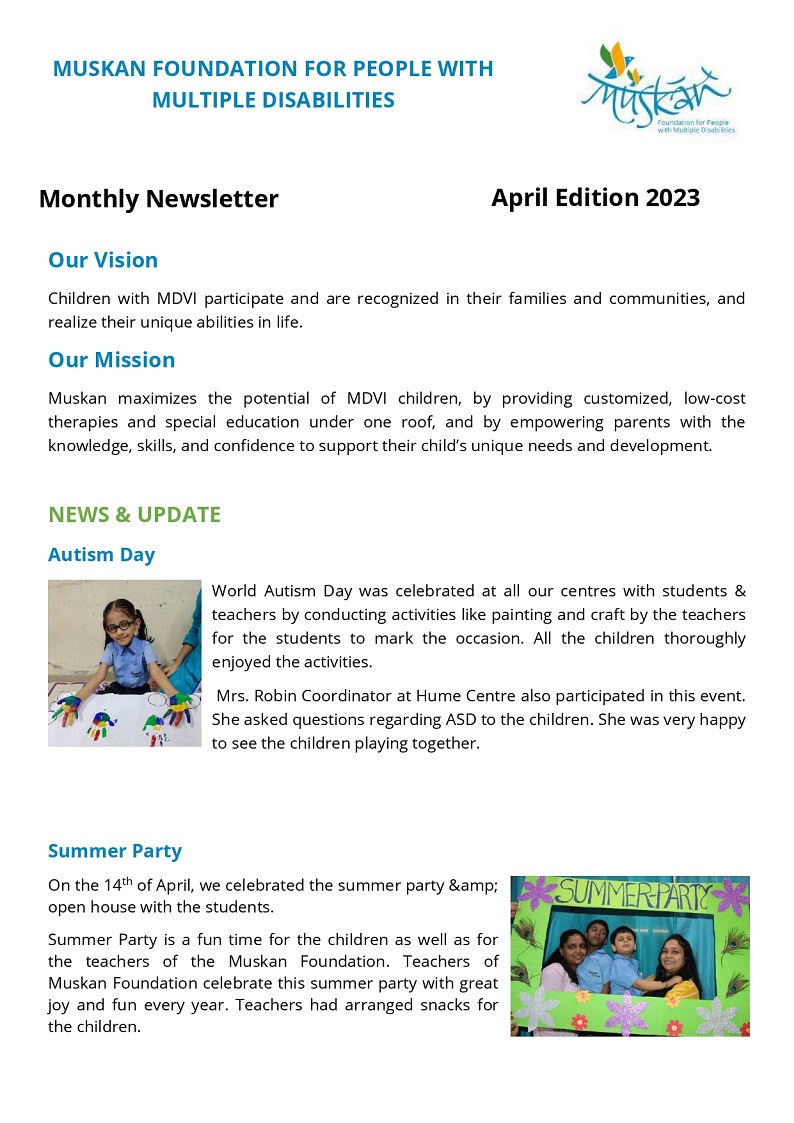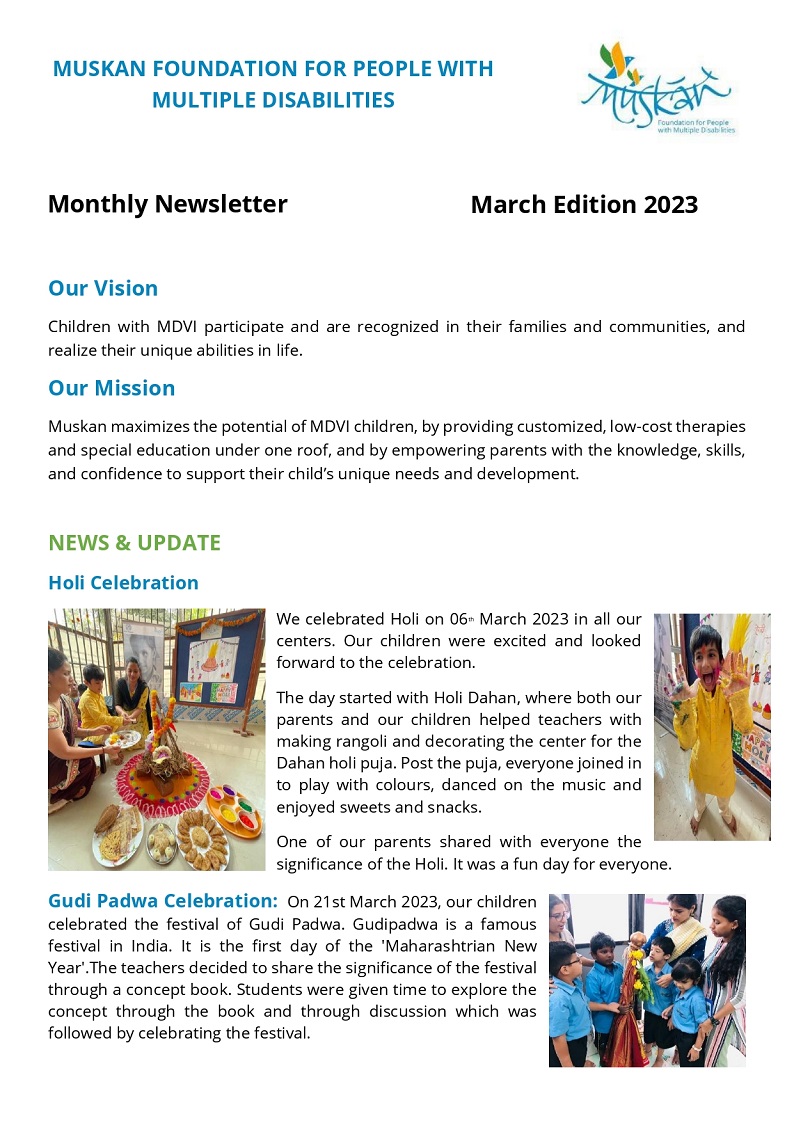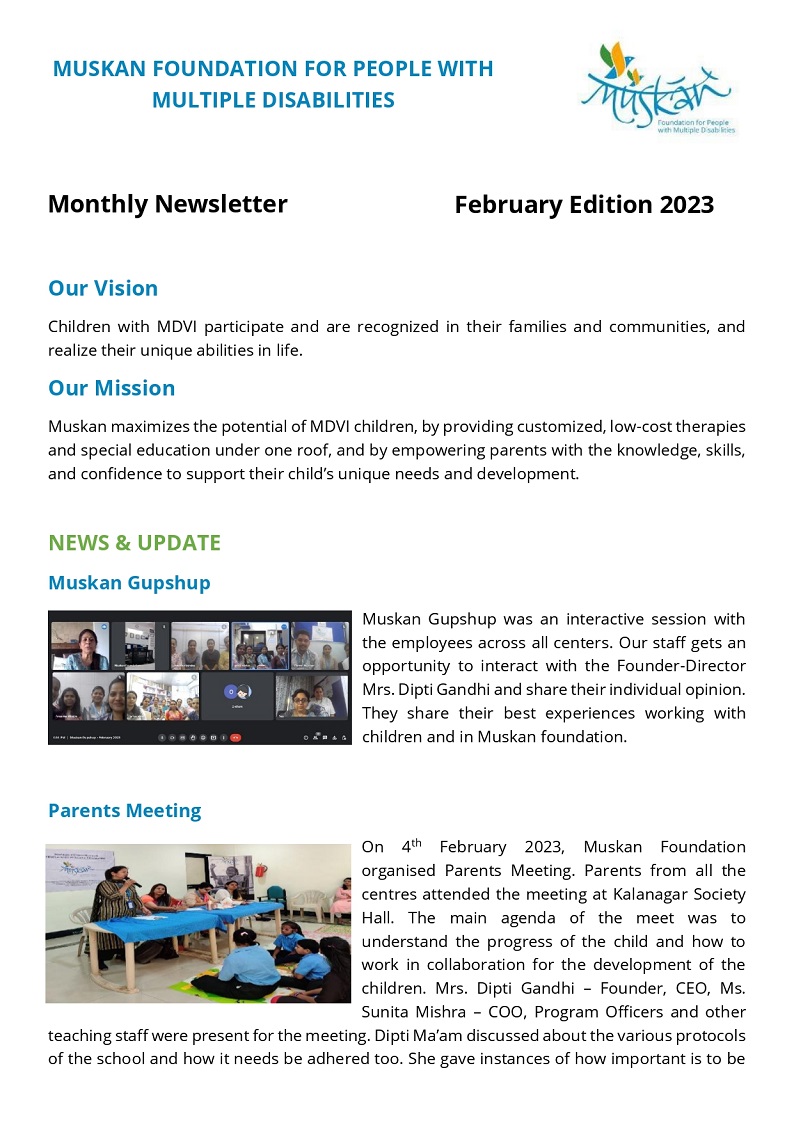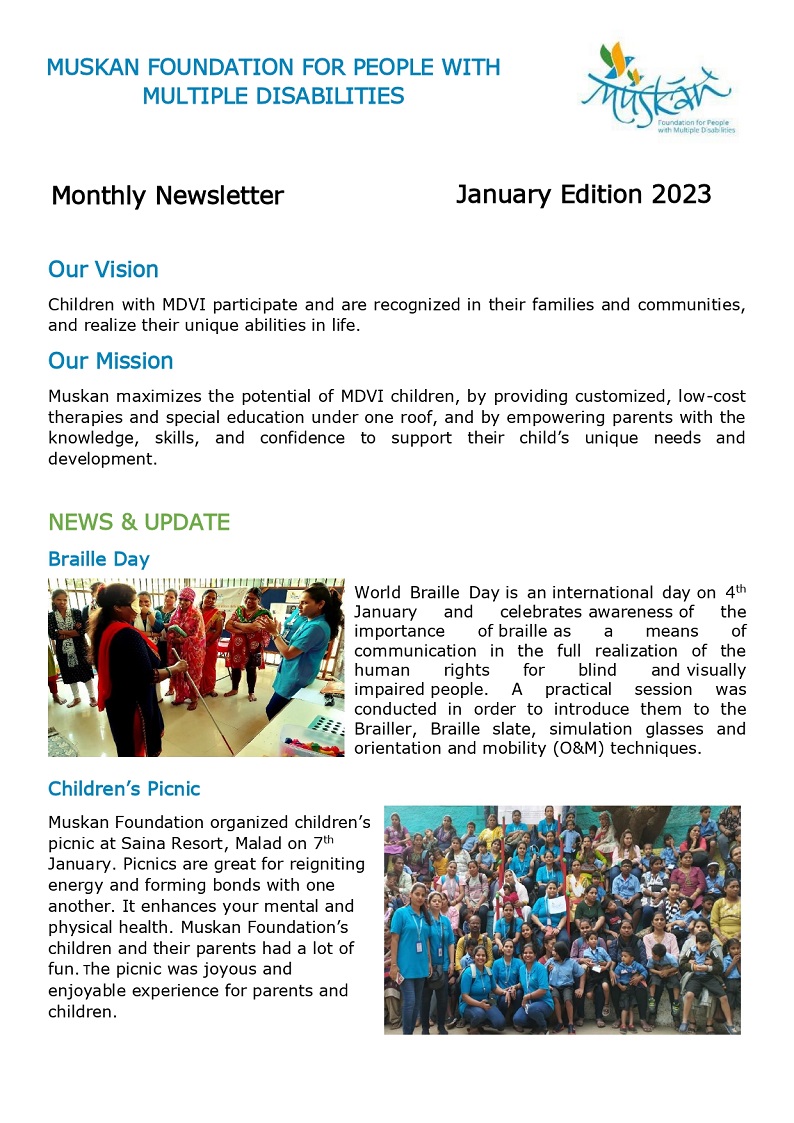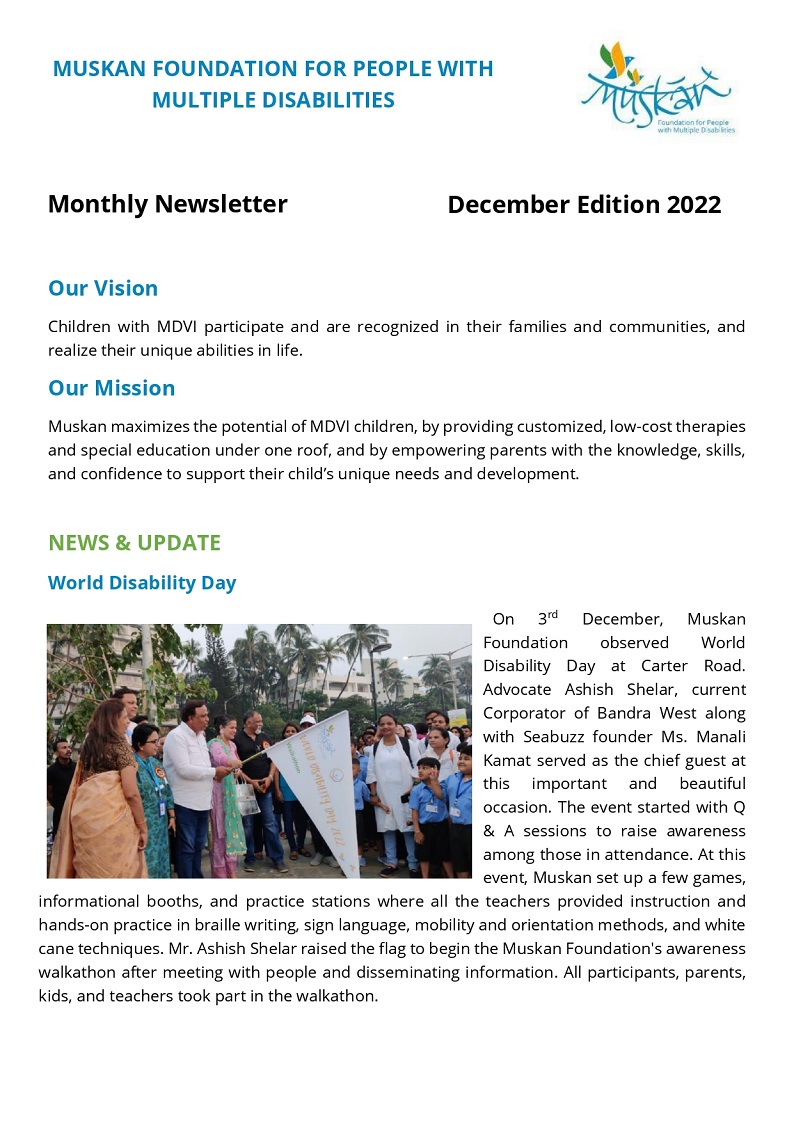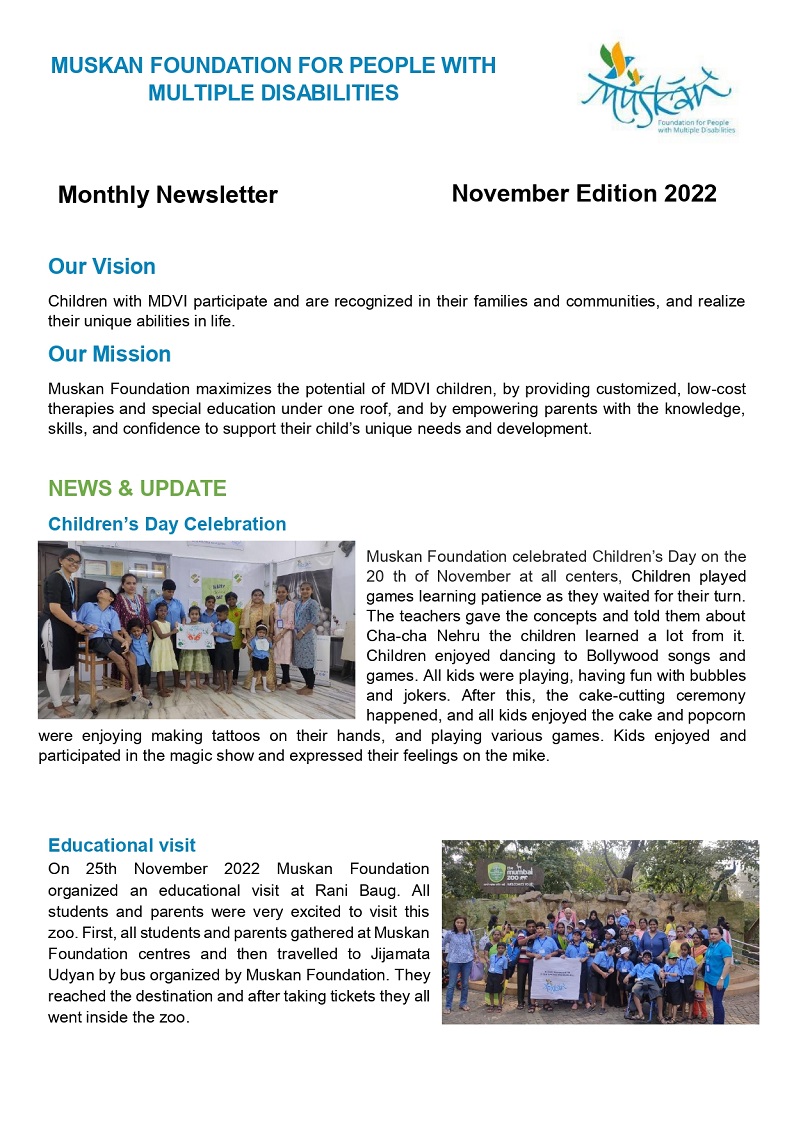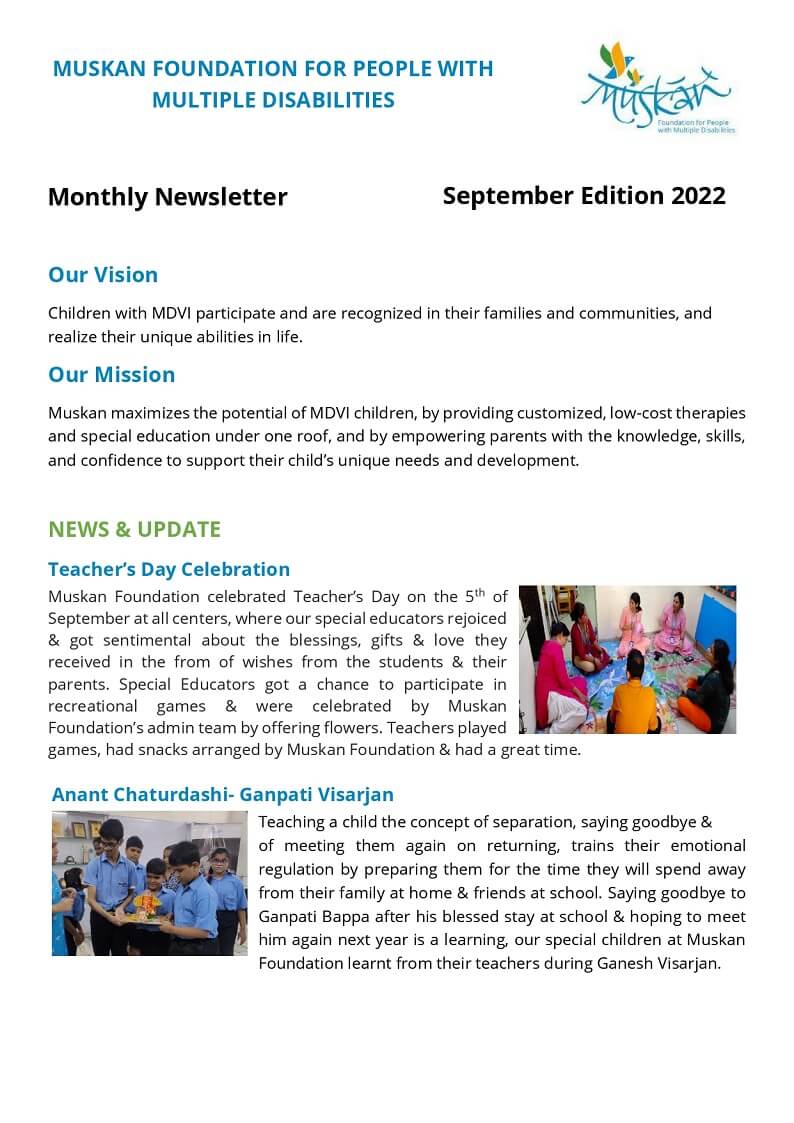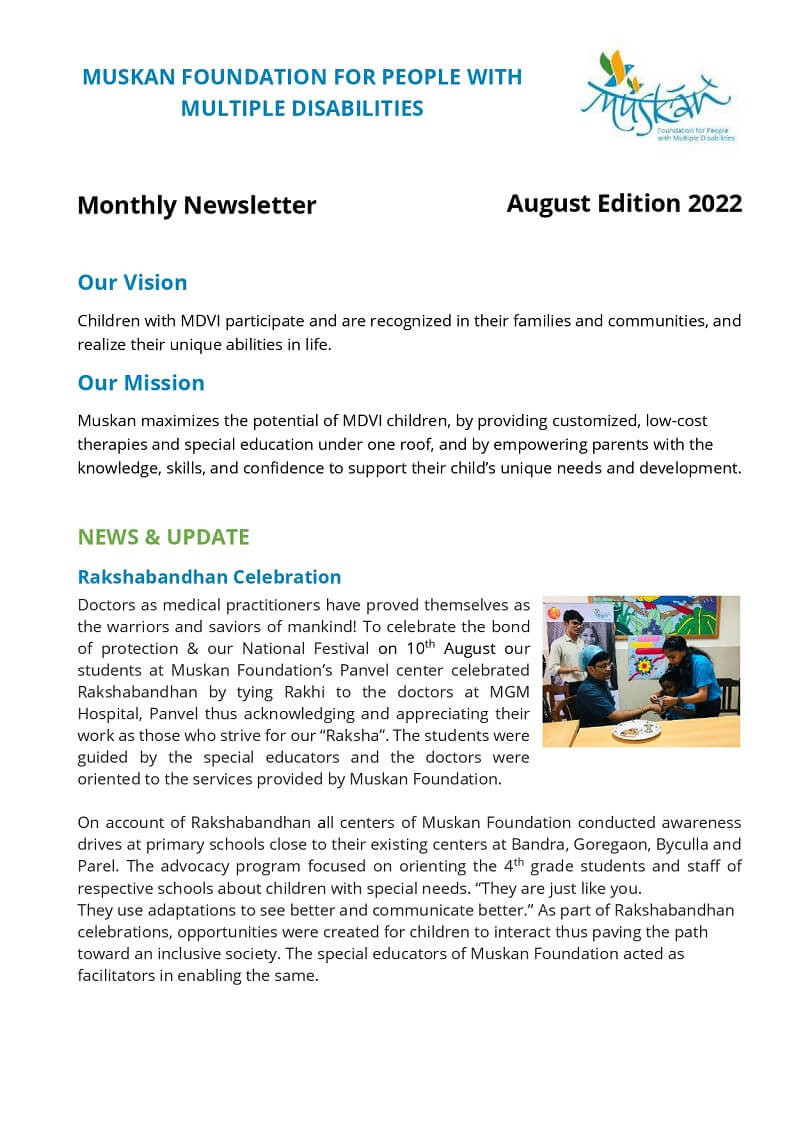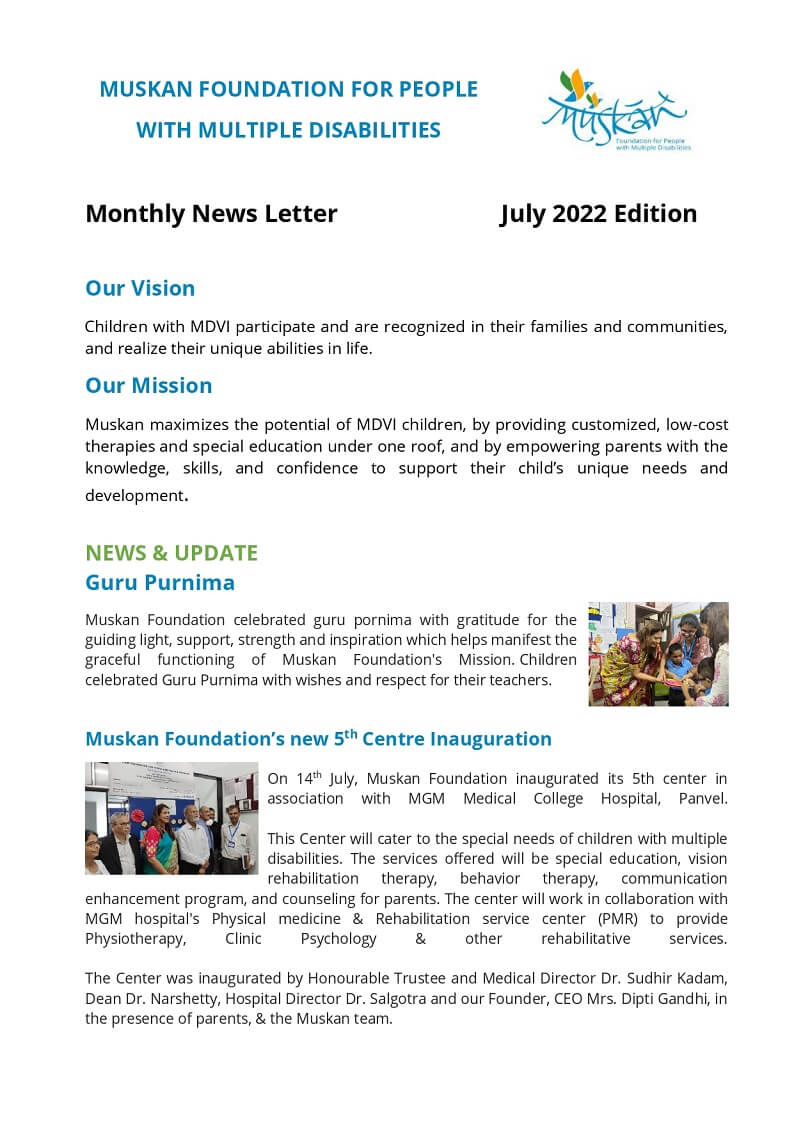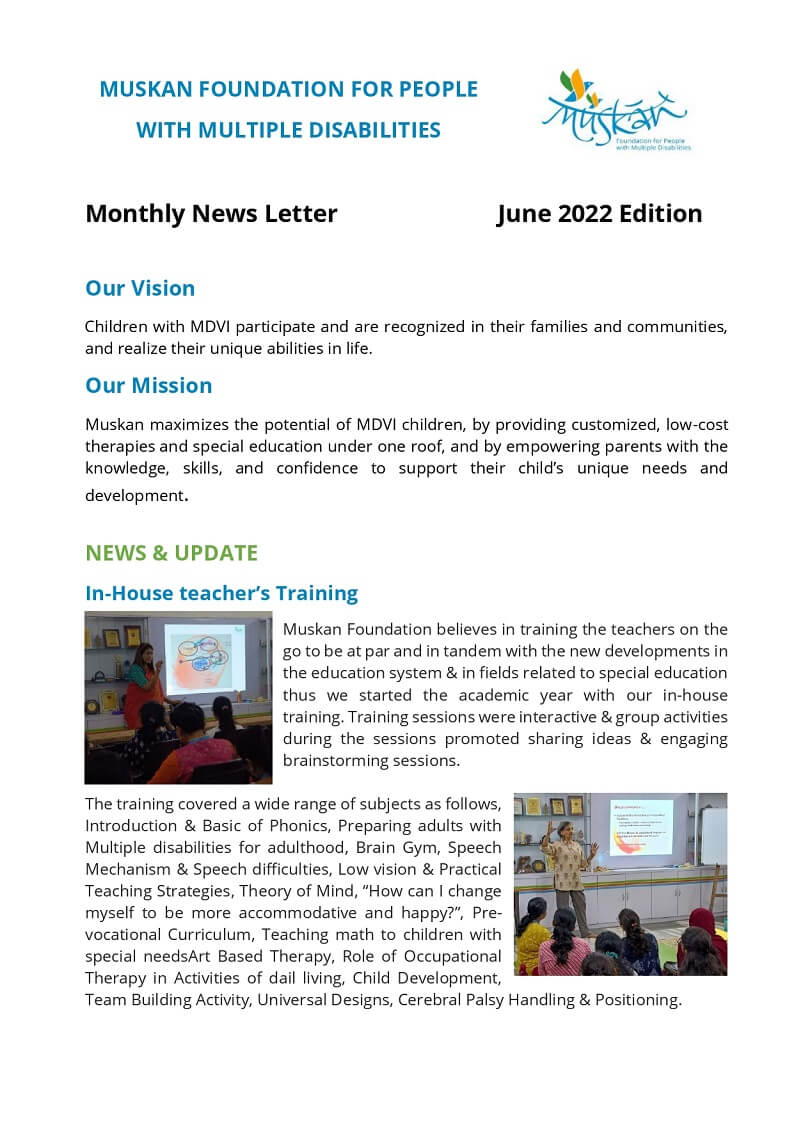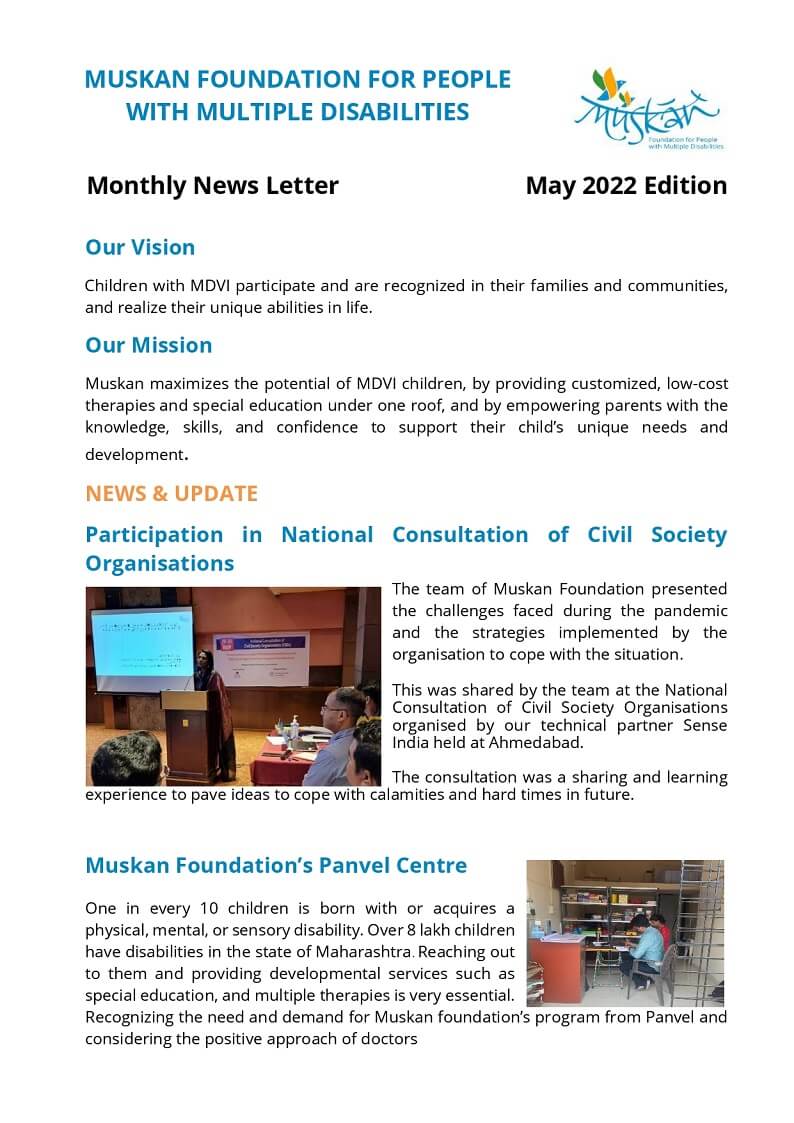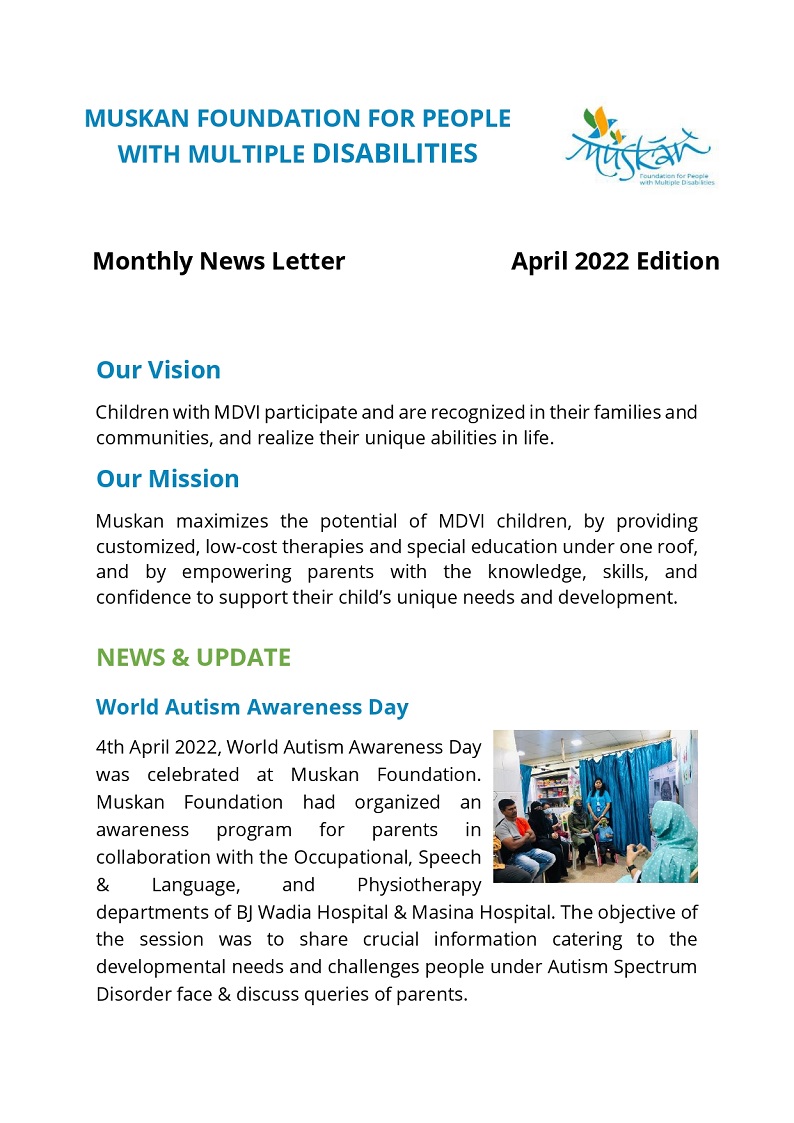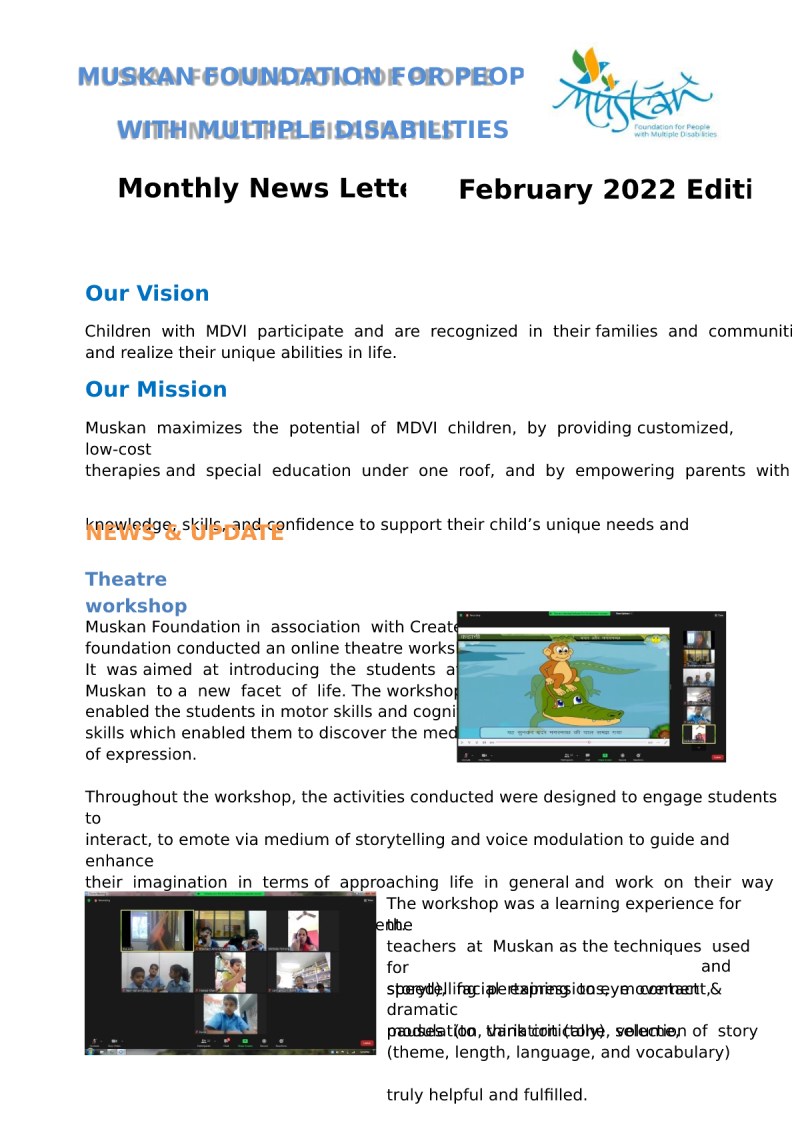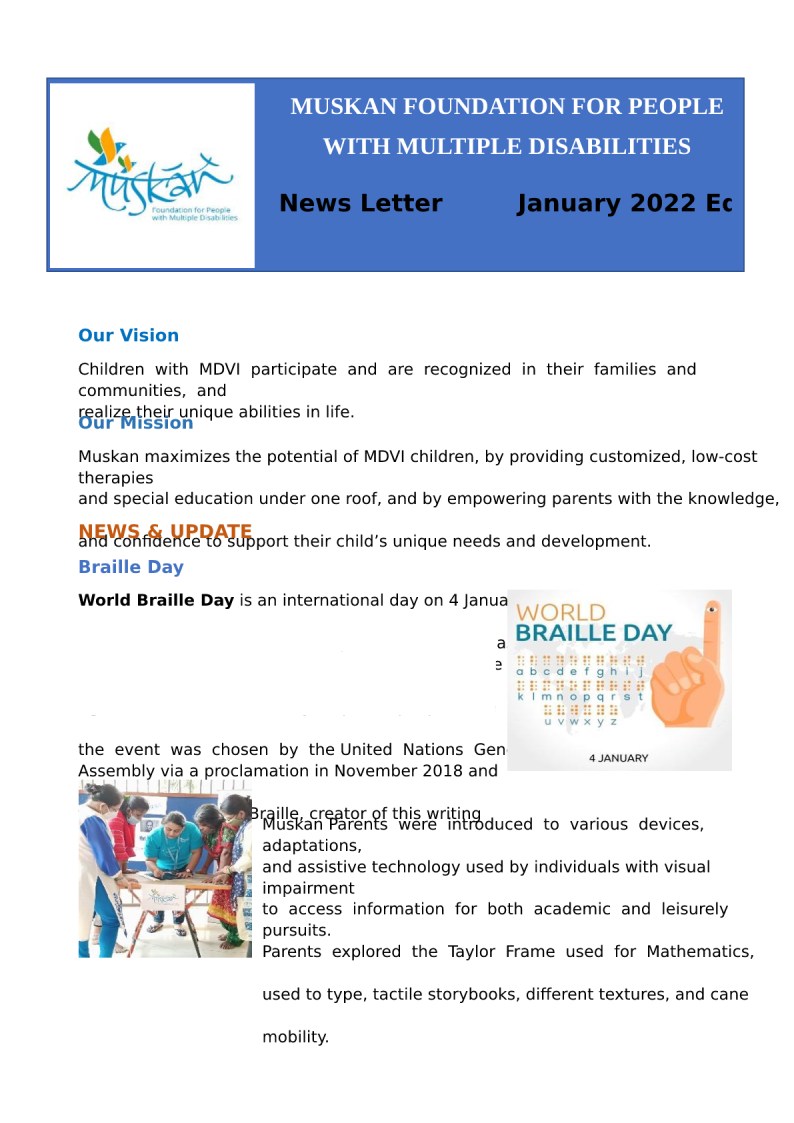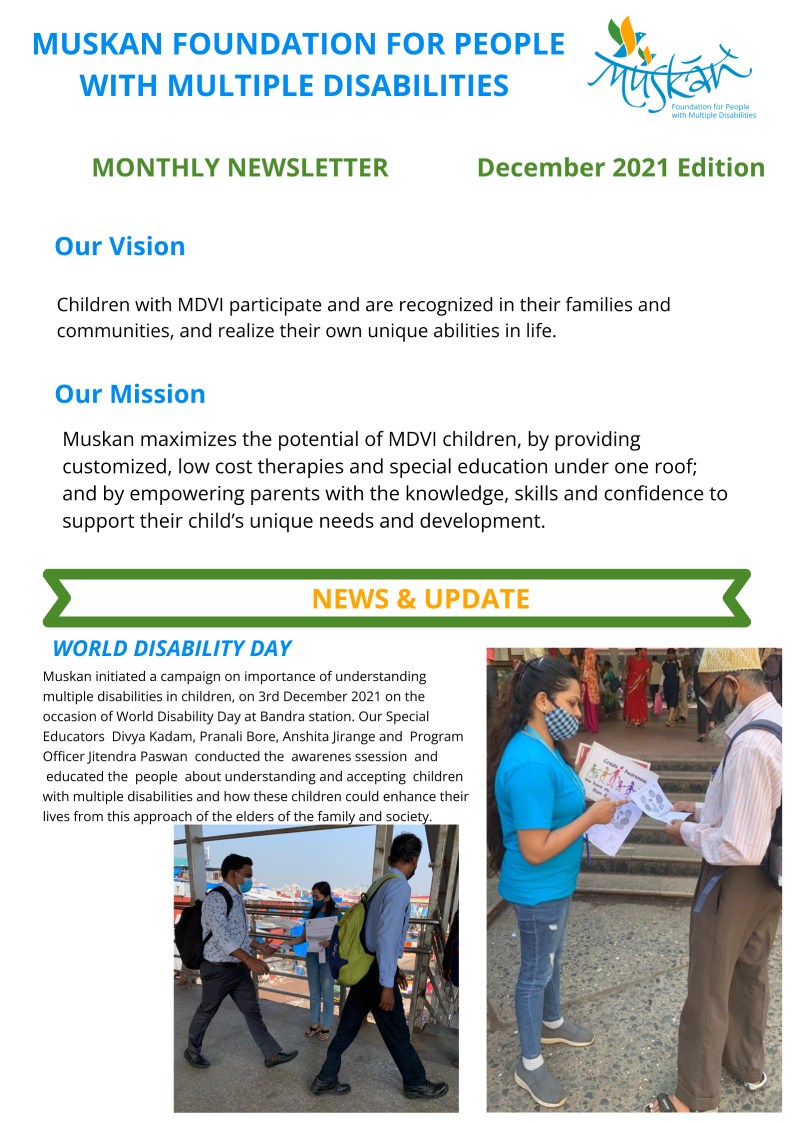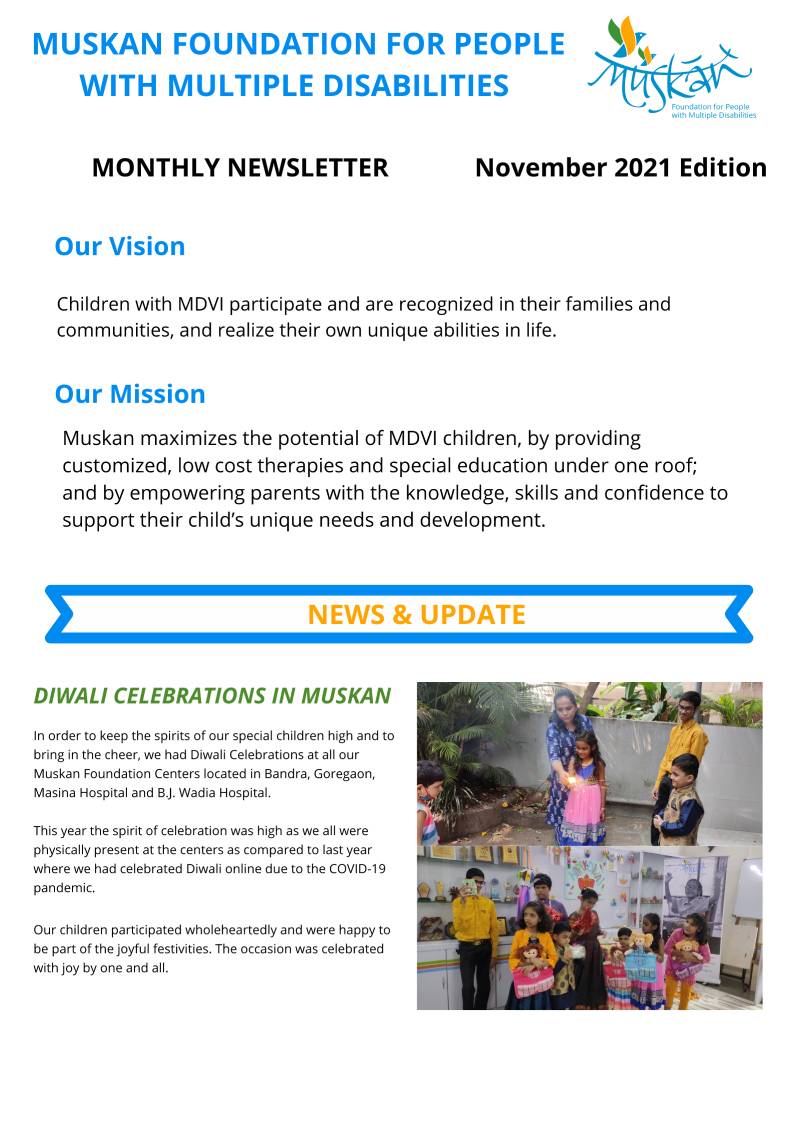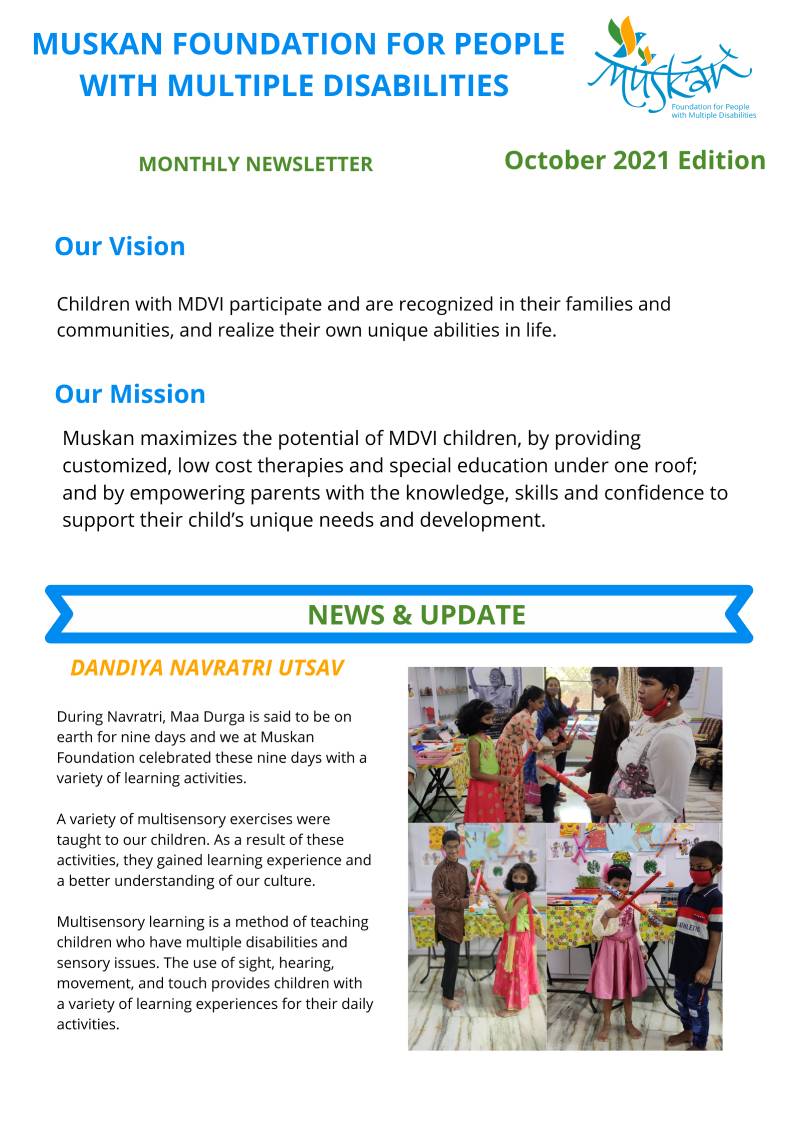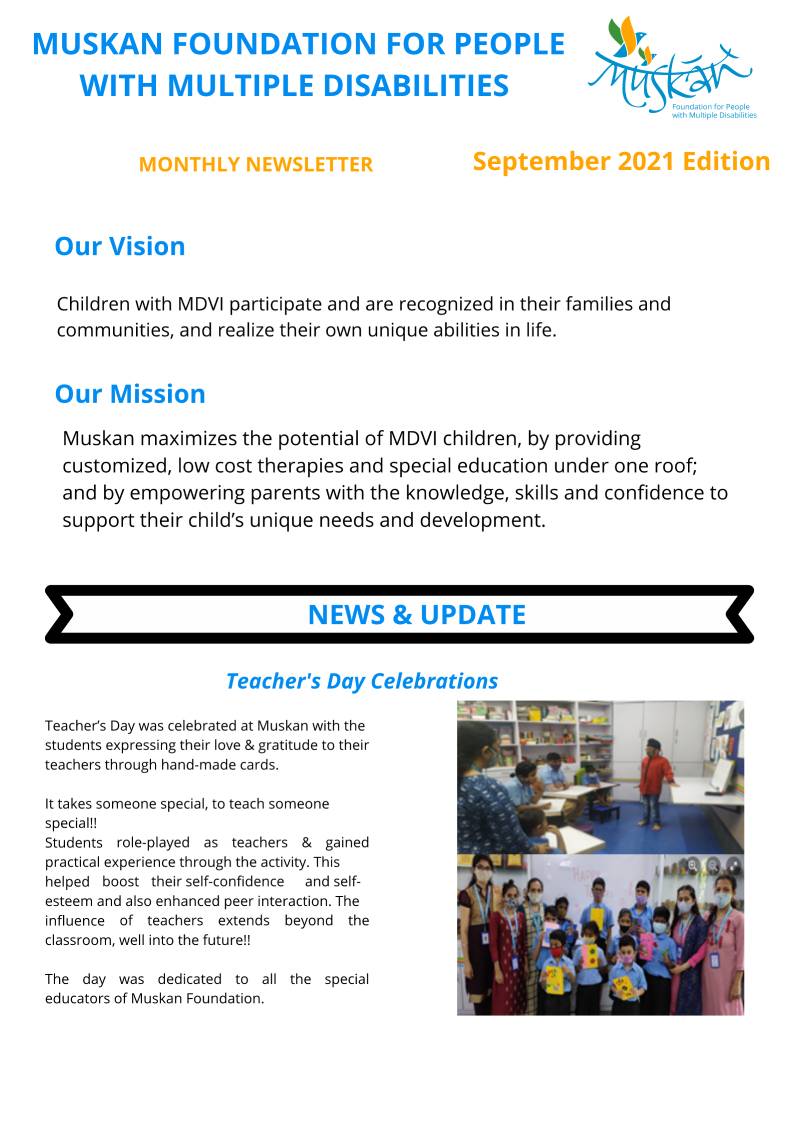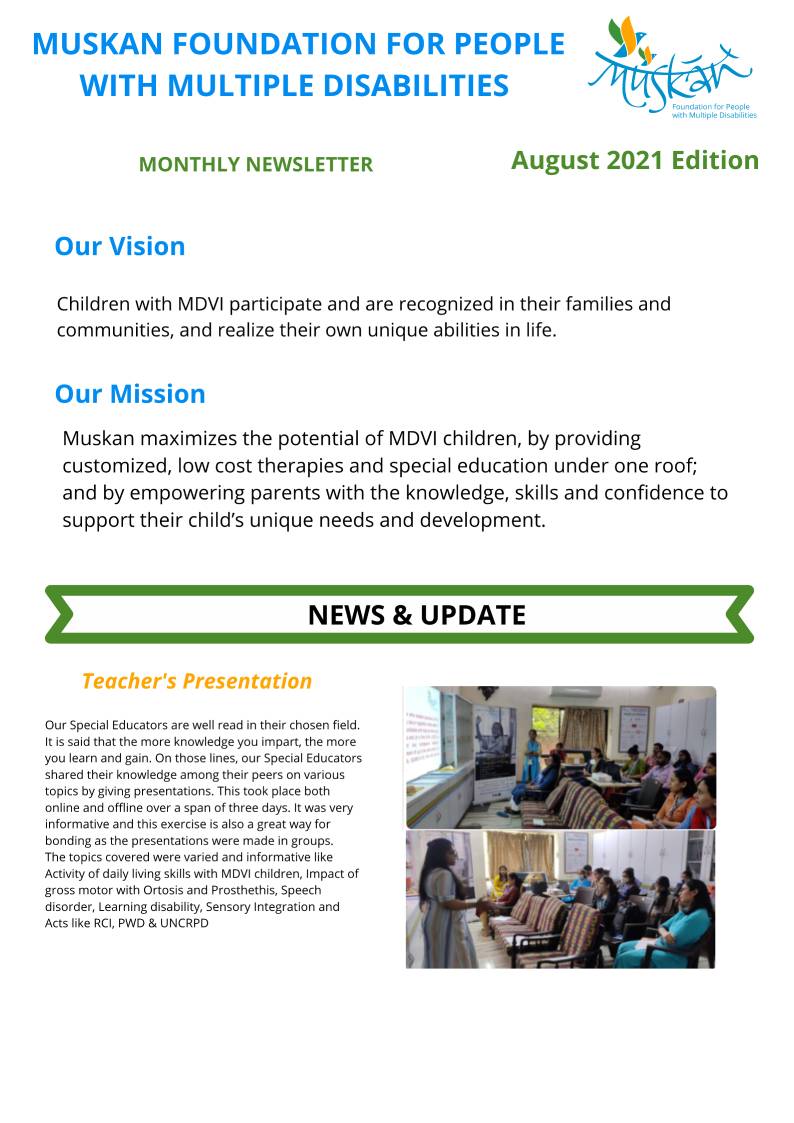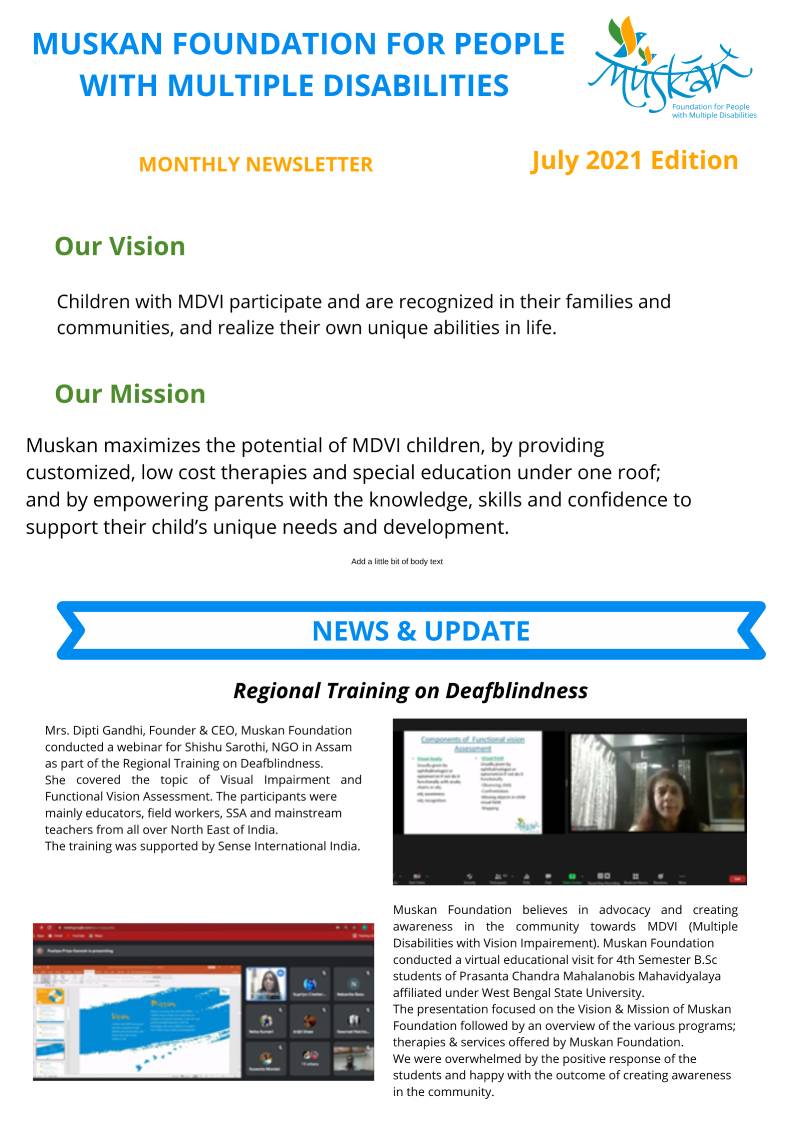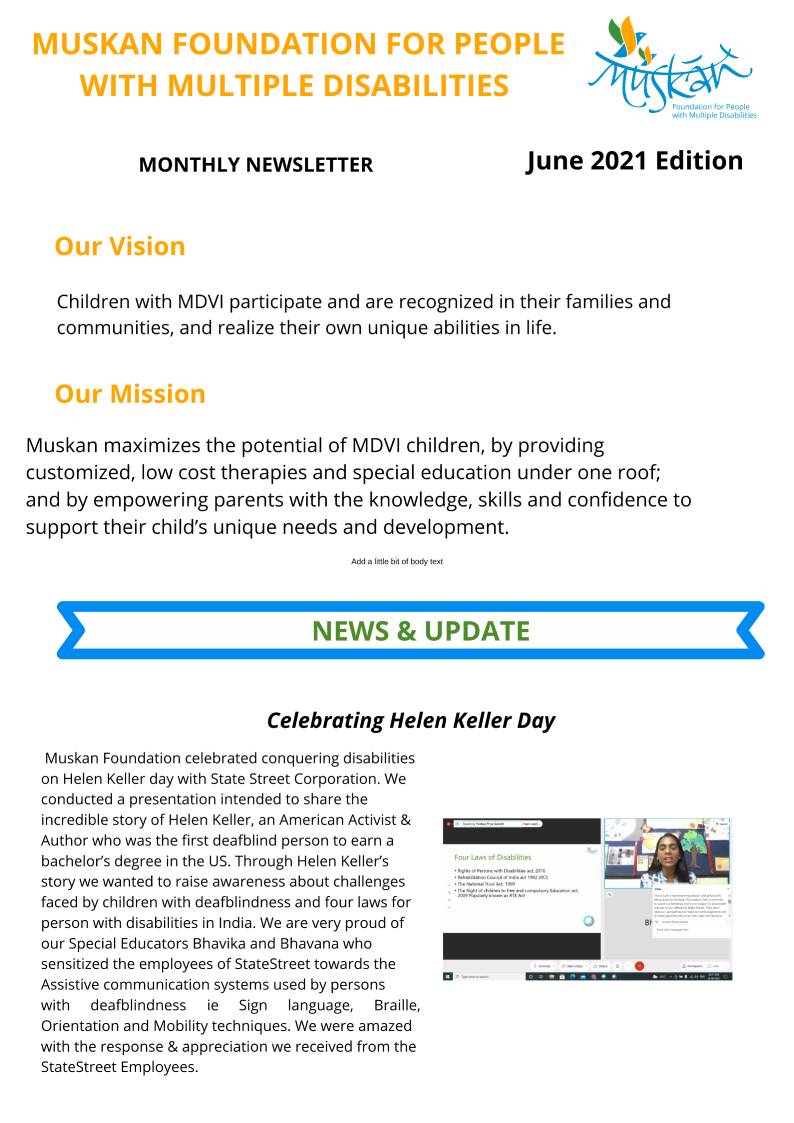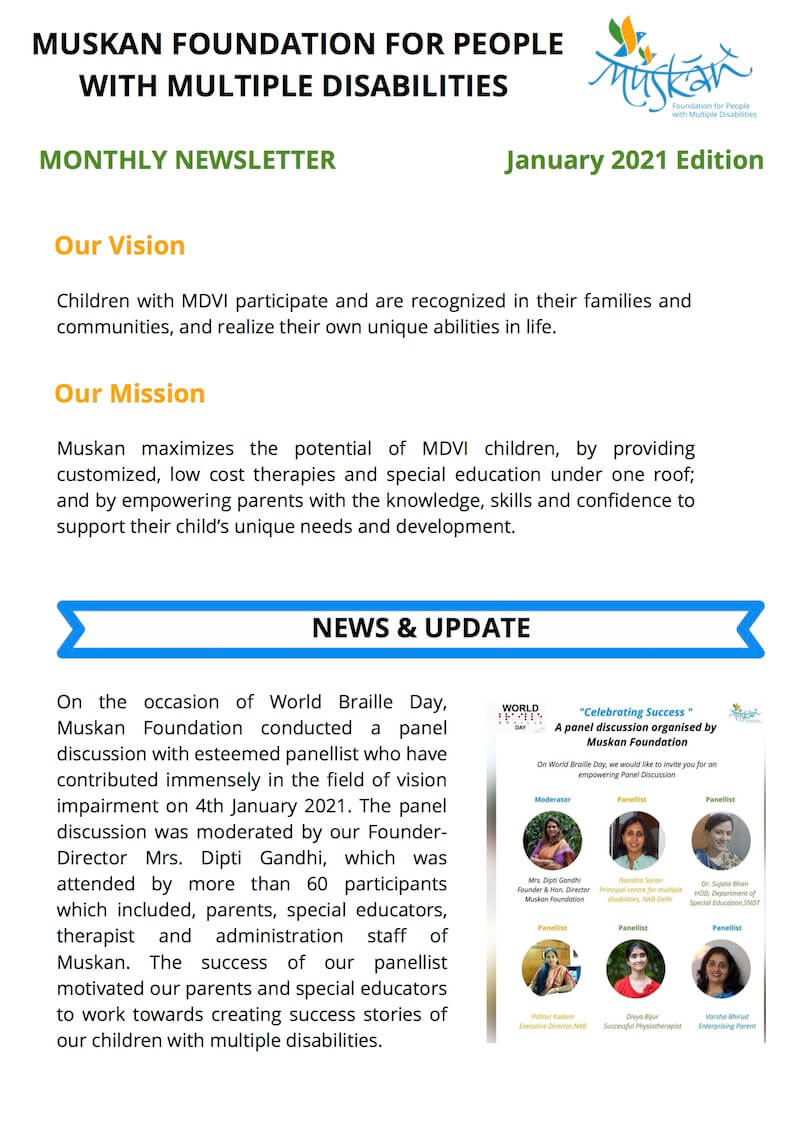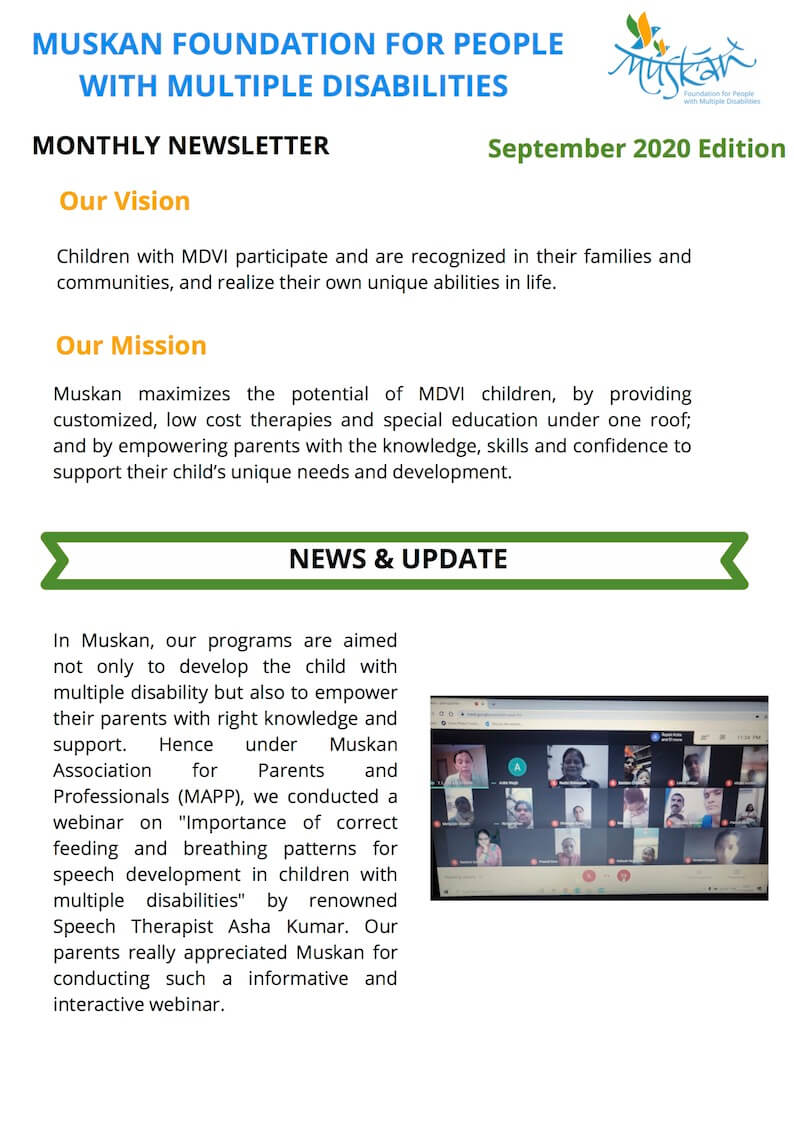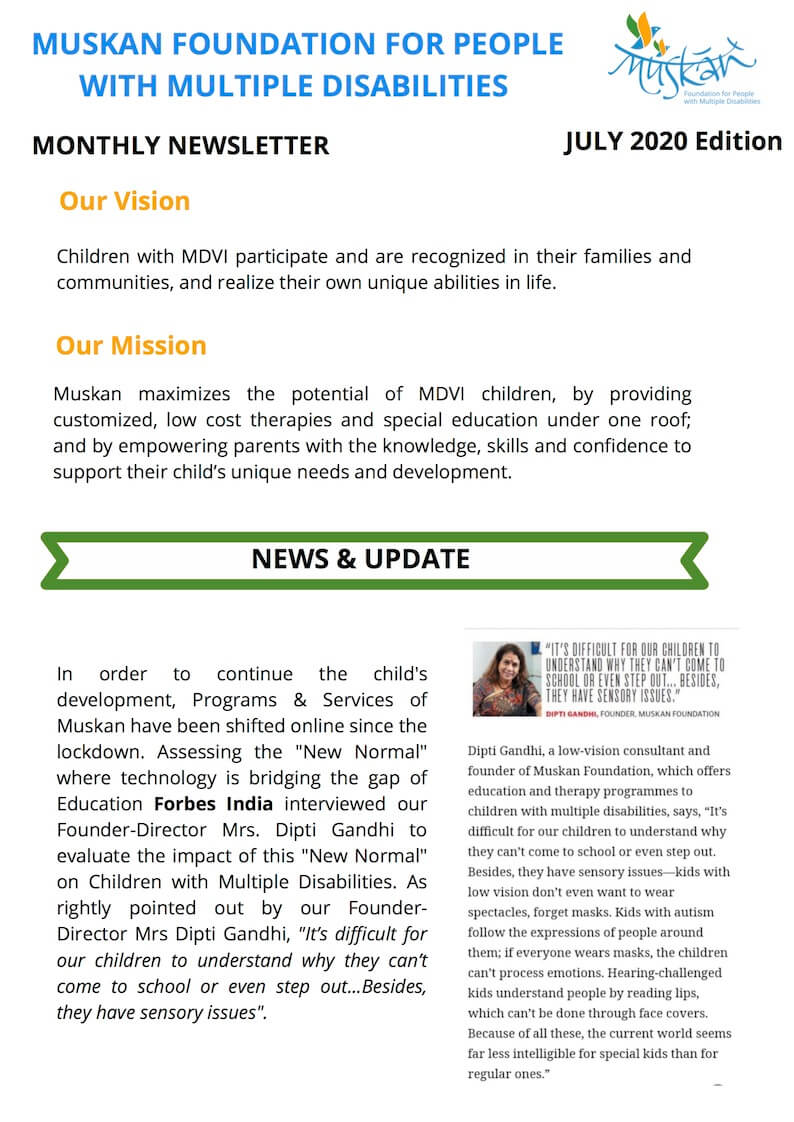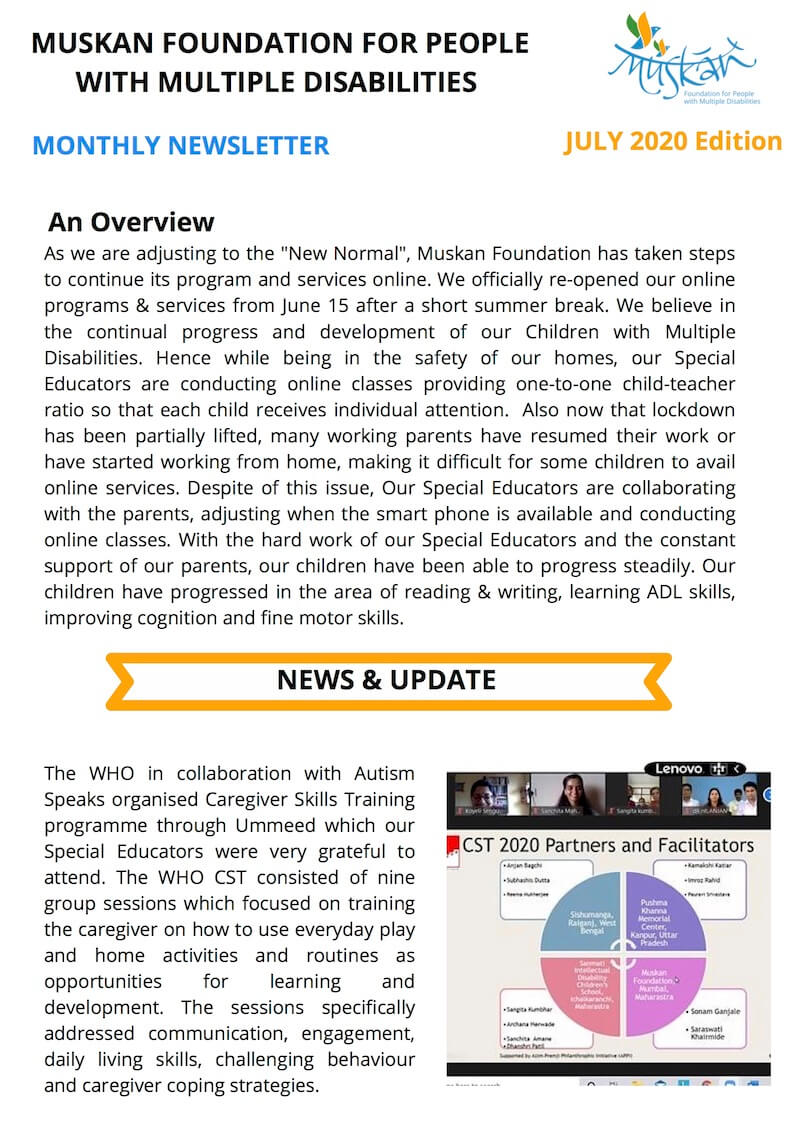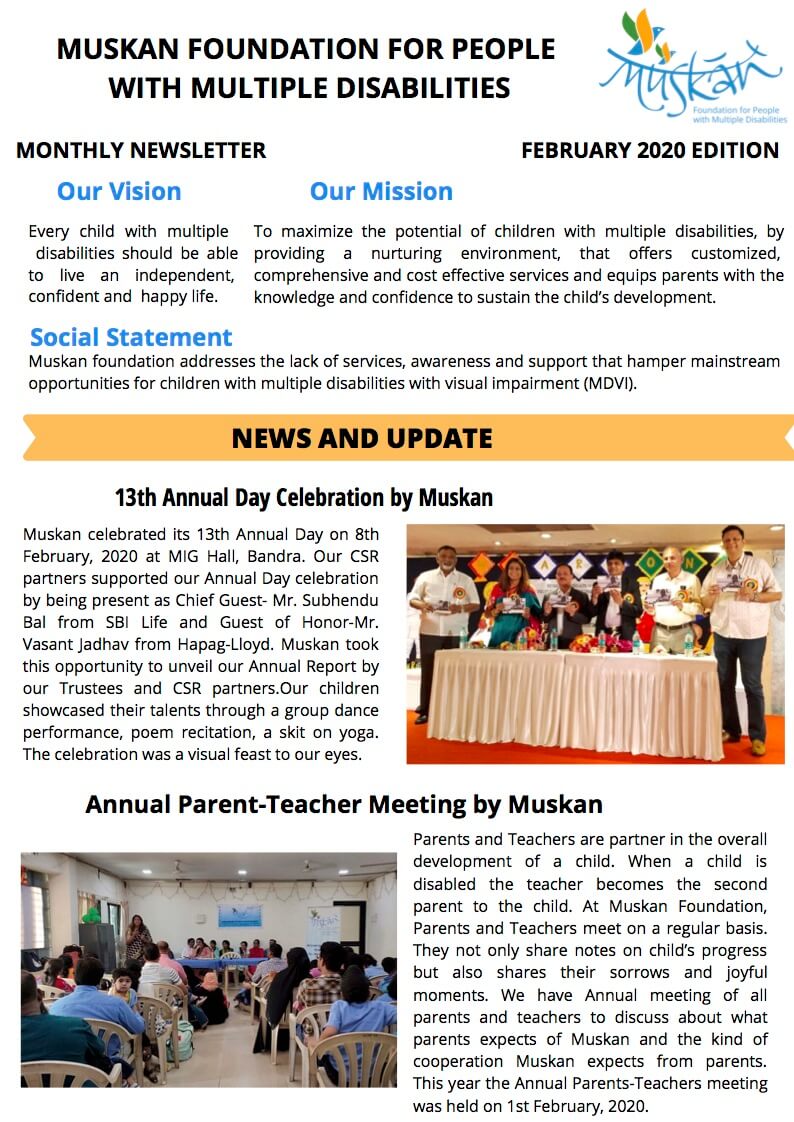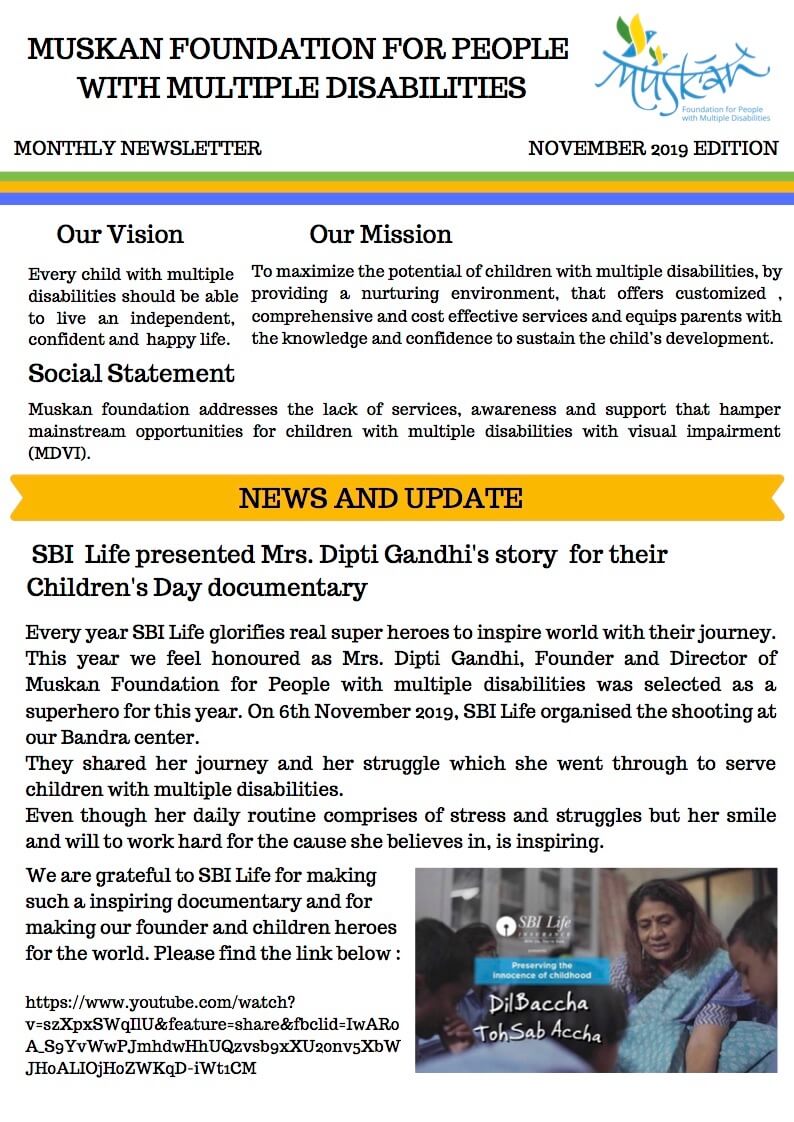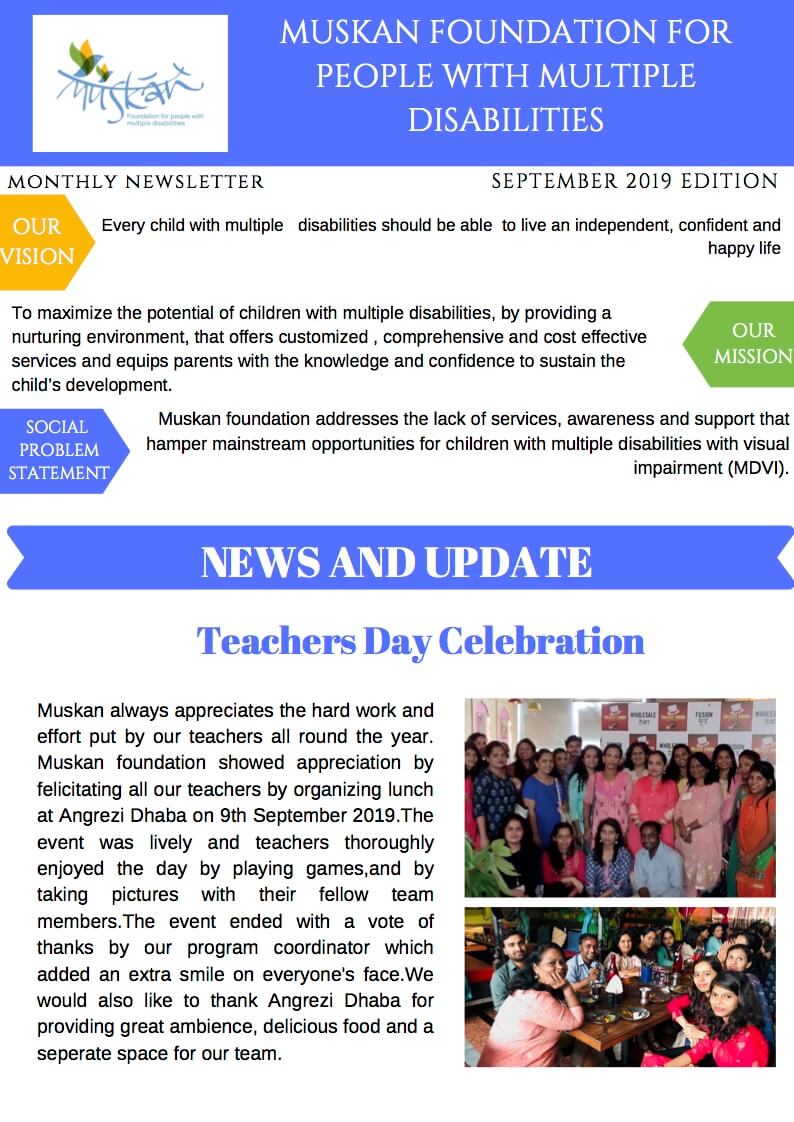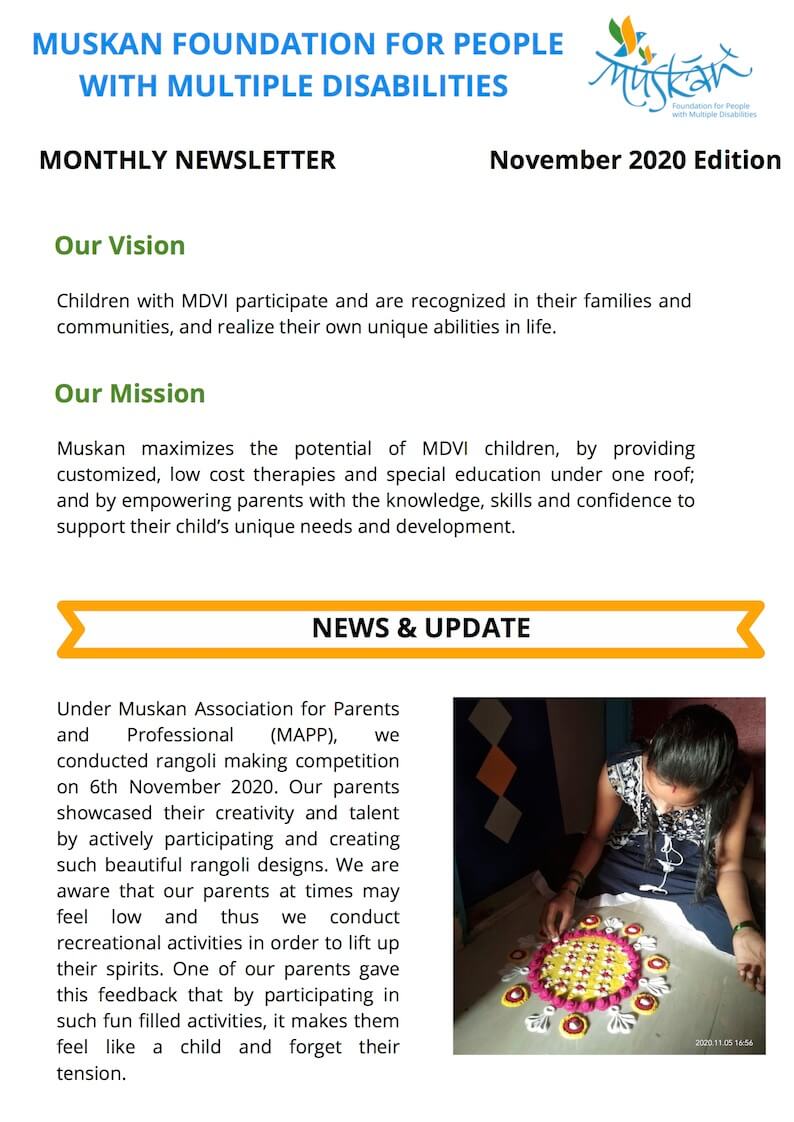Publications

Policies
- Risk Management
- Human Resource
- Child Protection
- Volunteers
- Rules for Therapy
- Parents
Risk Management is an analytical procedure that assists in assessing the operational context and identifies the risk level of undesirable events that may affect personnel, assets, and operations; providing guidance on the implementation of solutions in the form of specific mitigation strategies and measures with the aim of lowering the risk levels by reducing the impact and likelihood of an undesirable event.
Muskan Foundation recognizes that the organization is exposed to certain risks due to the nature of its activities and the environment in which it operates. Our Risk Management Policy is based on United Nations Risk Management principles and guidelines. Our approach is to instil a culture of risk awareness in such a way that every employee and stakeholder considers and assess risks in their daily activities.
The Risk Management Policy forms part of the governance framework and integrates with the strategic planning process. Our assessment policy is broadly classified in the areas of strategy, operations, finance, knowledge management and compliances. The Trustees act as an Audit and Risk Committee and will monitor the risks on a regular basis. Risk mitigation strategies are well developed, which minimize the risks to children and are incorporated into the design, delivery and evaluation of programmes, operations and activities which involve or impact upon children. Muskan Foundation will communicate and consult its internal and external stakeholders on its approach to risk management.
Muskan Foundation’s Human Resource Policy is made to maximise staff performance in support of our vision, mission and strategic goals. The policy specifies directing the design of employee benefits, hiring personnel, training and development, performance reviews, reward management, code of conduct, pay and benefit administration, grievance redressal mechanism and whistle blower policy. It is also concerned with organisational change, labour relations, and reconciling organisational requirements with those imposed by collective bargaining agreements, legal legislations and governmental regulations.
Muskan recognizes that sound personnel administration is based on principles that ensure dignity and rights of all the staff. Working conditions, privileges and benefits promote both individual well – being and program achievement within practical limits. Muskan believes in upgrading the policies depending on the need and welfare of the children, staff and other stakeholders.
Muskan Foundation encourages Volunteers and Interns to work, support, capacitate themselves as well our organization by working towards common goals. Volunteers and Interns bring new information and perspectives to our programs. Their commitment and work with Muskan can improve educational and therapeutic outcomes for our beneficiaries. The contributions of volunteers are greatly appreciated. We want our volunteers to realize the value of their dedication to Muskan. Muskan Volunteer or Intern are expected to behave in a respectful, positive, and professional manner with co-workers and all internal and external stakeholders. Discrimination or harassment of any kind (verbal, physical, mental, emotional, sexual) is not accepted. When working with students it is necessary to treat them in an equal manner.
For the overall development of the child and to overcome a variety of physical, sensory and emotional challenges, a variety of therapies are needed. The apt therapy is selected and used in a complementary way with special education. Children are also referred to Muskan Foundation for different therapies. The patients visit Muskan as per appointments taken over the phone with the therapists. In the first visit, the therapist fills up the Intake Information form and assessment form for the impairment. Therapist conducts the assessment and notes down all the details. This information is shared with the parents. The problem is explained and how therapy will help the child, the number of sessions required, fees for the therapy etc. is informed. If the child requires other therapies, then the child is referred to other therapists within Muskan Foundation for an assessment.
Muskan provides Vision Rehabilitation Therapy, Physiotherapy, Occupational Therapy, Speech and Language Therapy, Behaviour Therapy. Therapies are an essential part of the life of children with special needs. A gap in these services is detrimental to their health and regression sets in immediately. We ensure punctuality, effectiveness and confidentiality of the therapies provided to children.
Muskan Foundation caters to Multiple Disabilities with Vision Impairment (MDVI) children enrolled in the Muskan Foundation center, by providing customised, low-cost therapies and special education under one roof. It empowers parents of MDVI children with the knowledge, skills and confidence to support their child’s unique needs and development through three core programs of Muskan Foundation, Special Education, Therapies and Advocacy and Training. To support the development of children the programs like the mother toddler program, collaboration of parents and professionals from the field of multiple disabilities and training of Special Educators are carried out. Advocacy plays a very critical role in the success of such projects. Muskan Foundation believes in creating sustainable programs and hence we encourage parents to contribute and share the cost of the program being implemented for their children.
